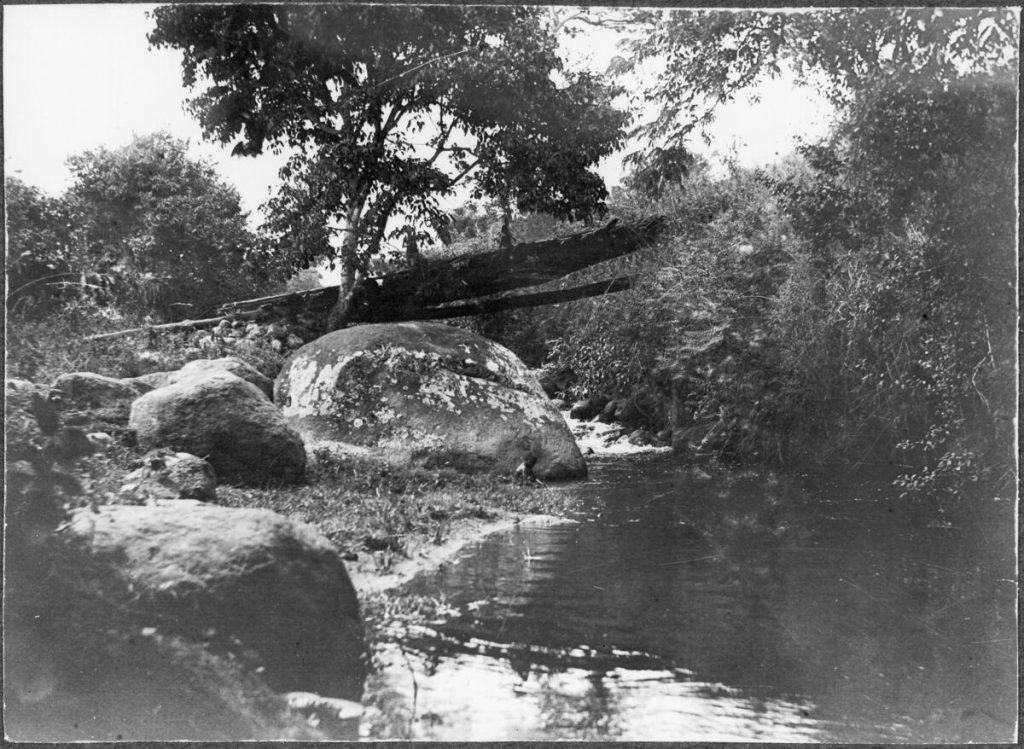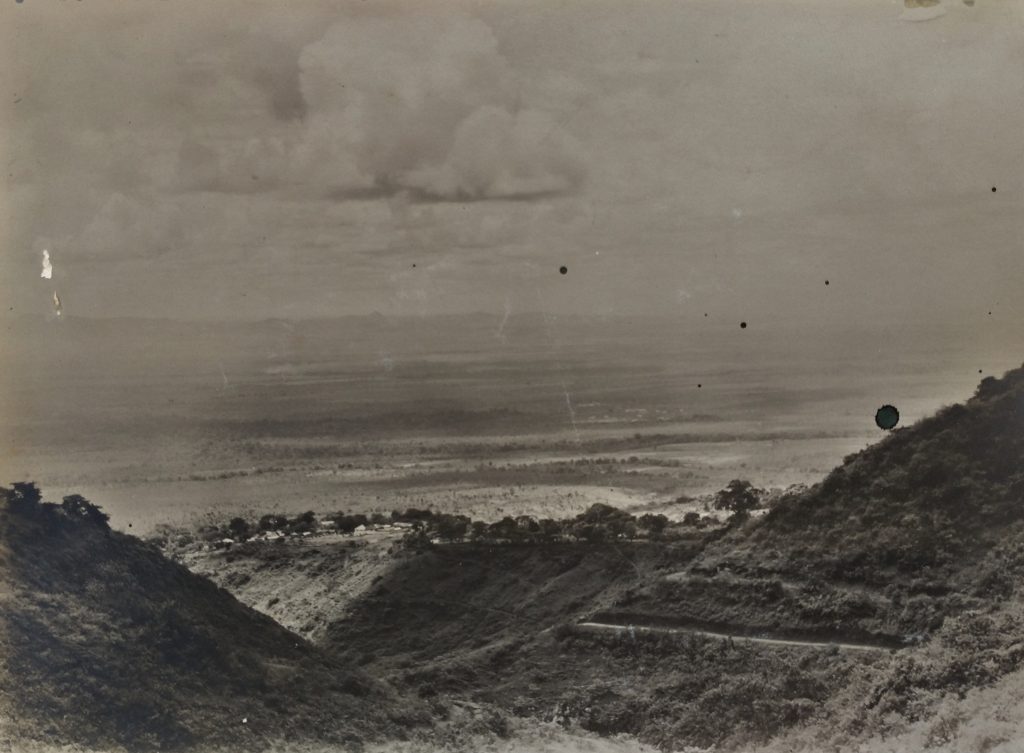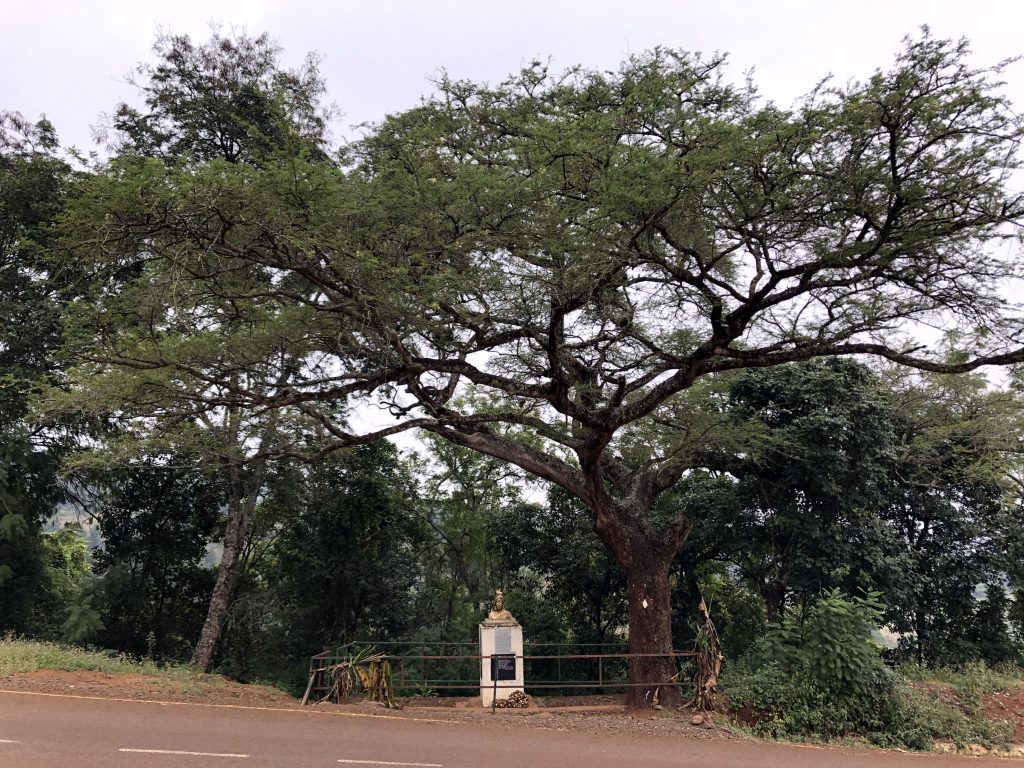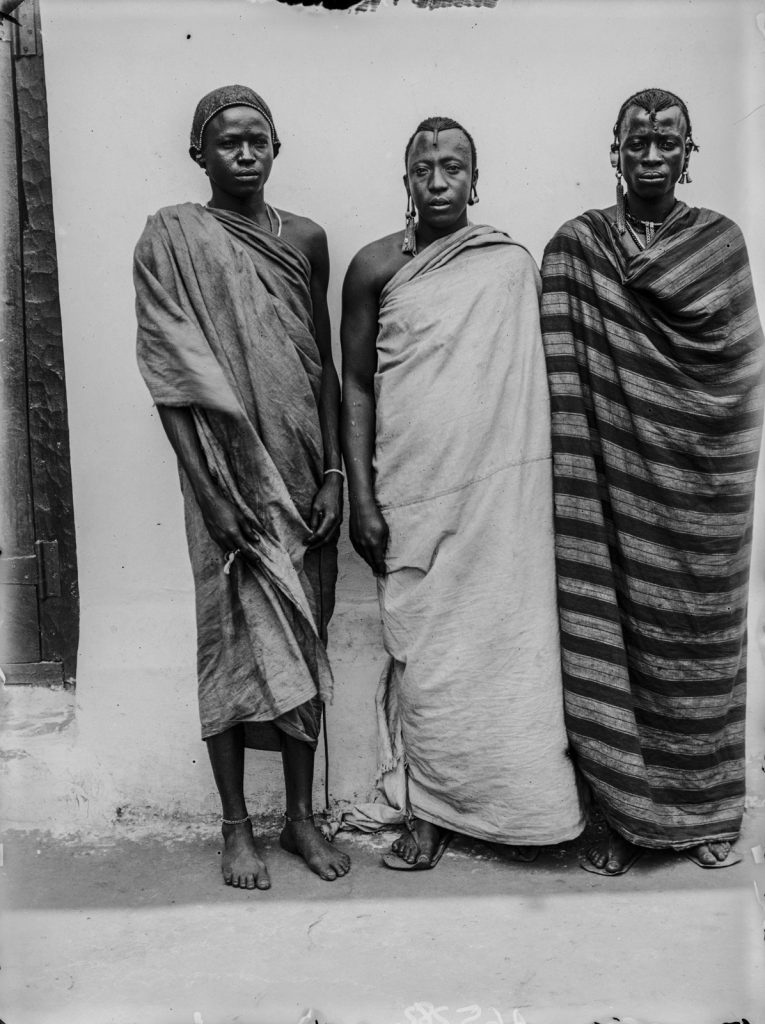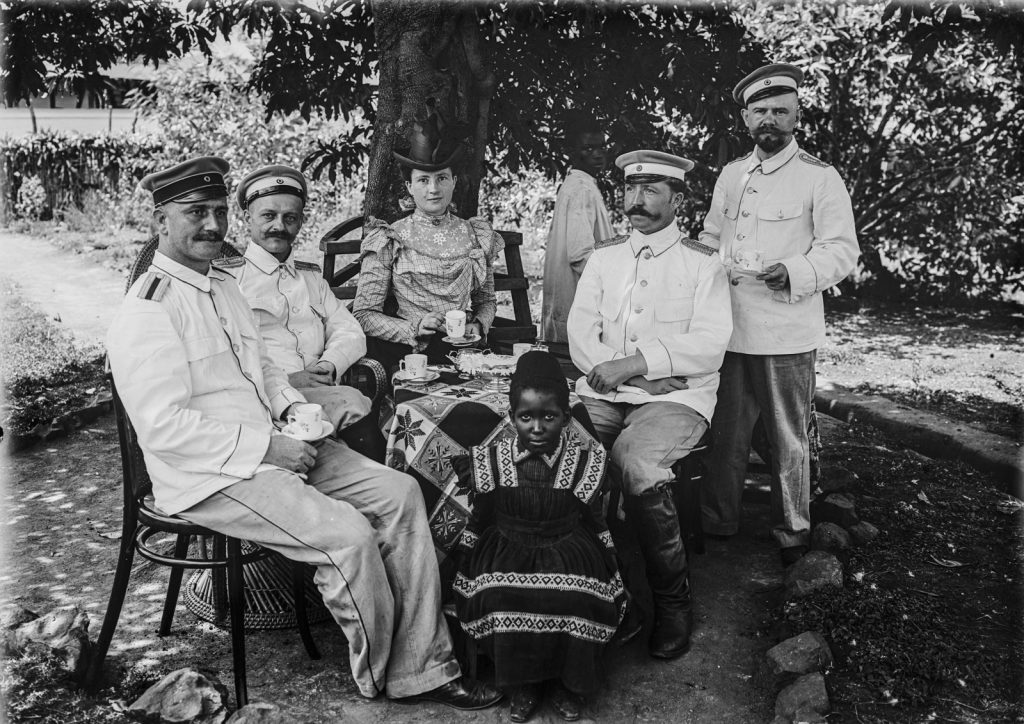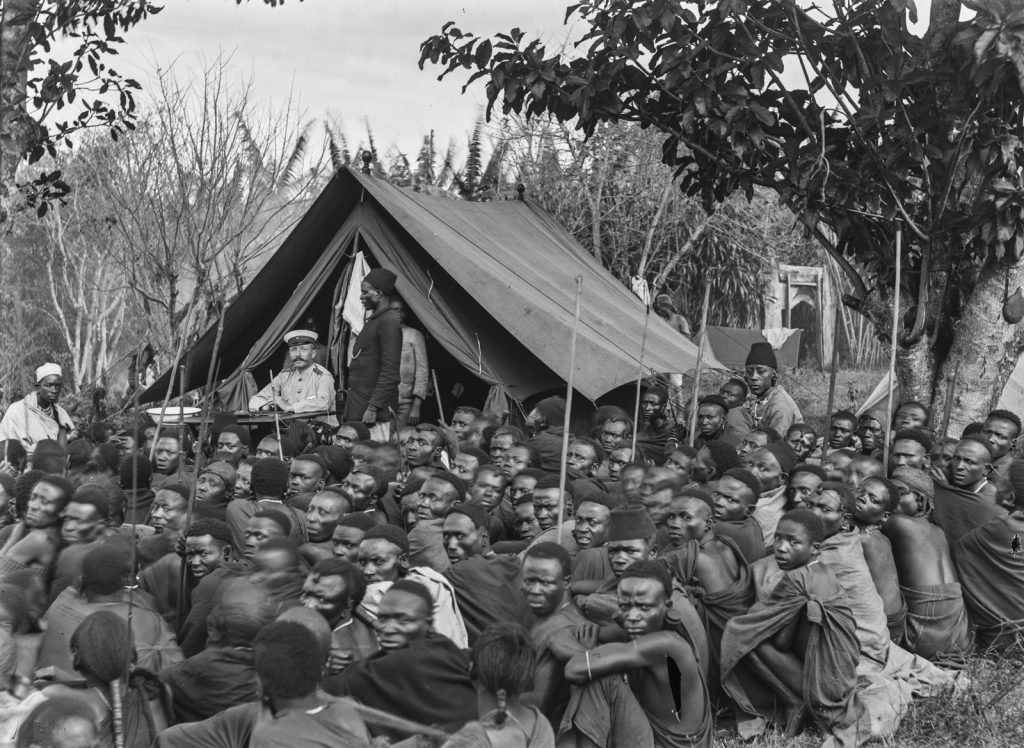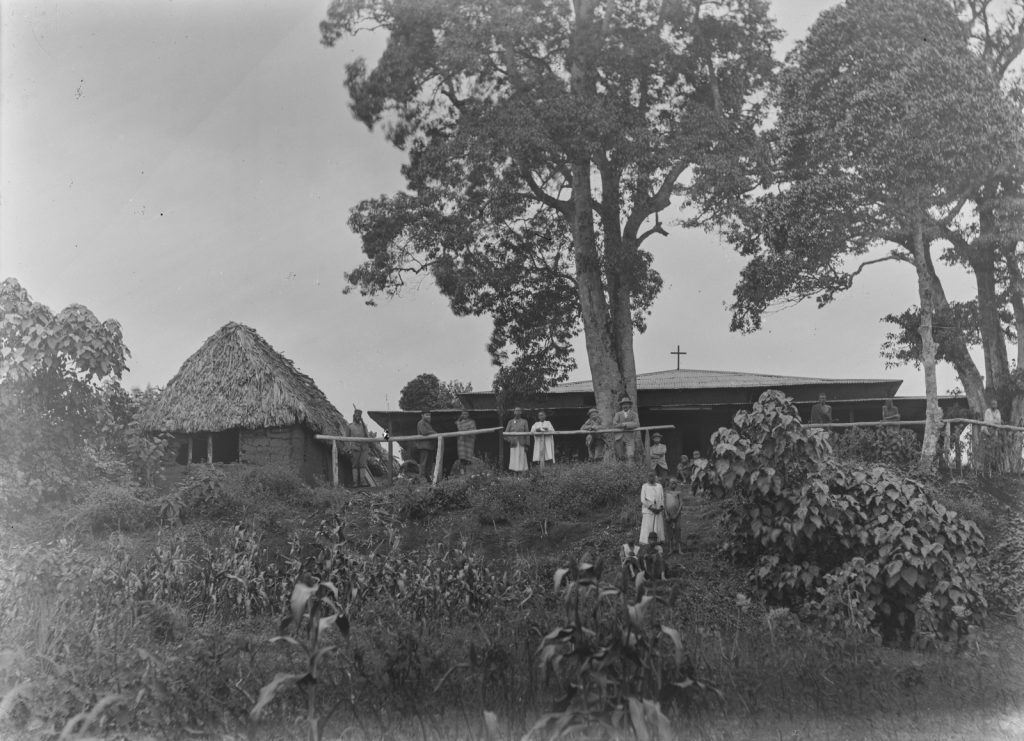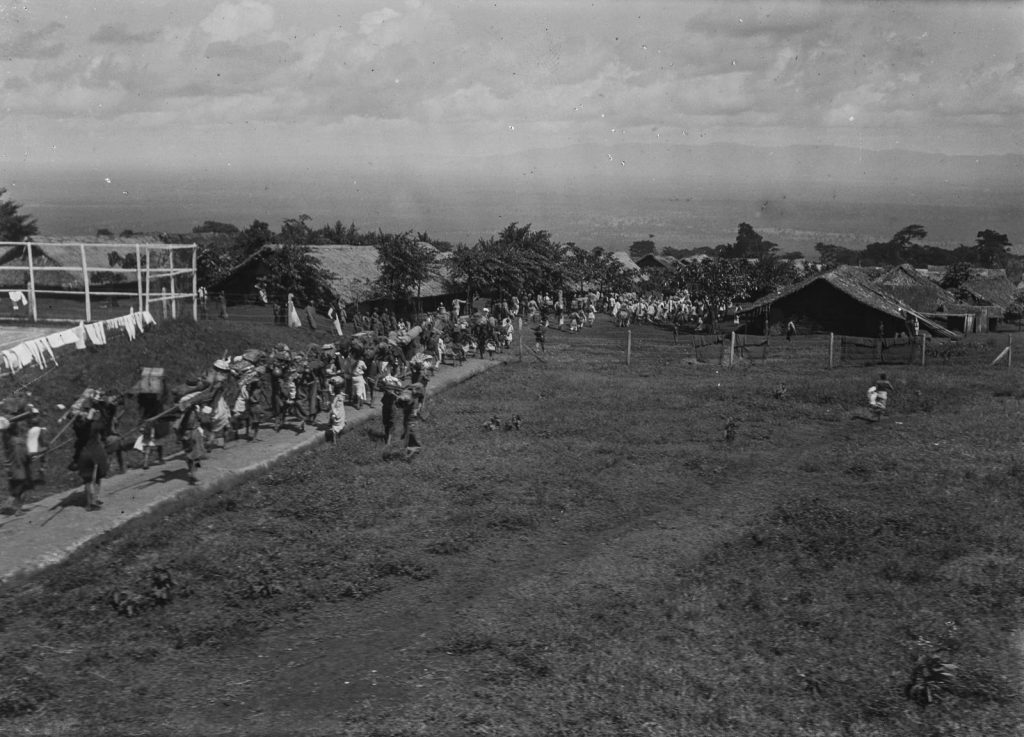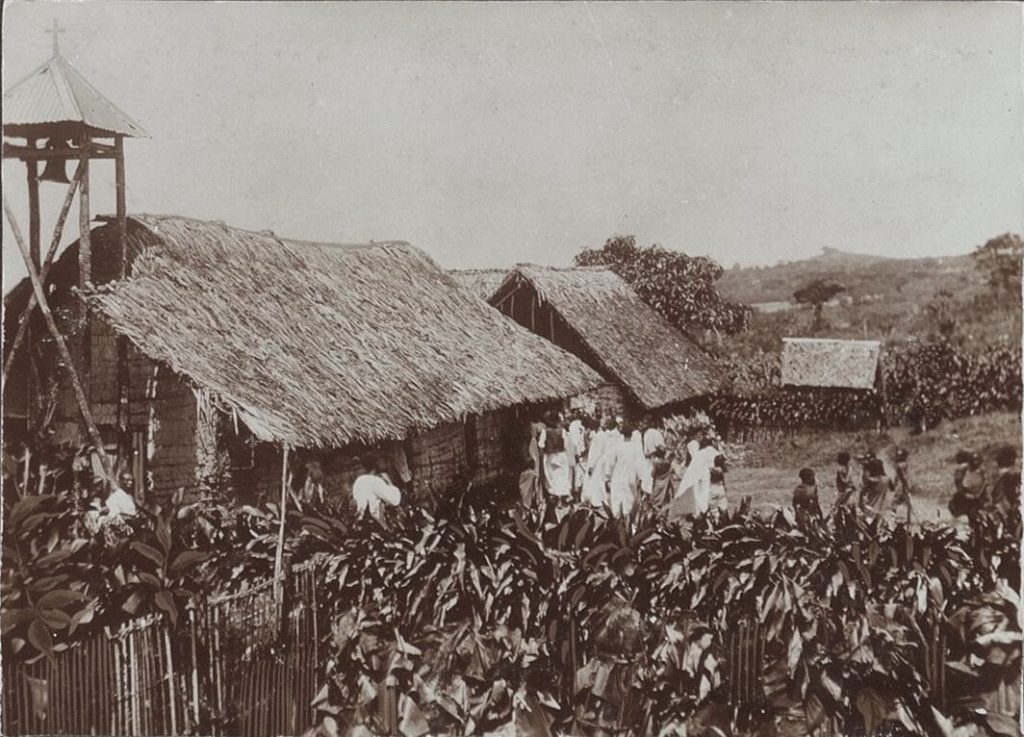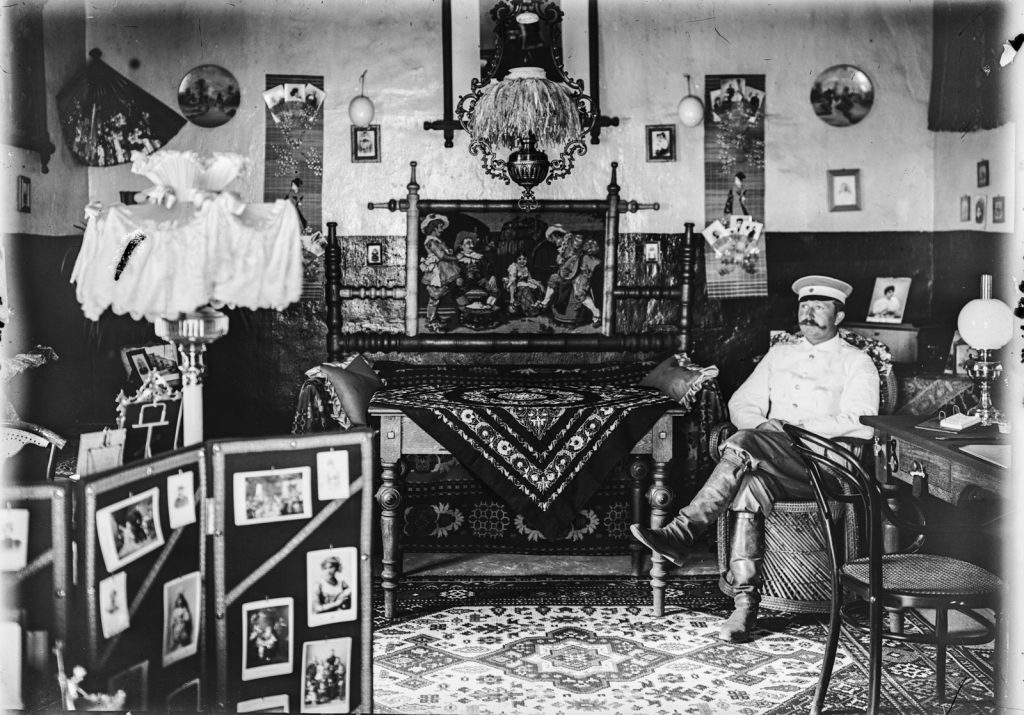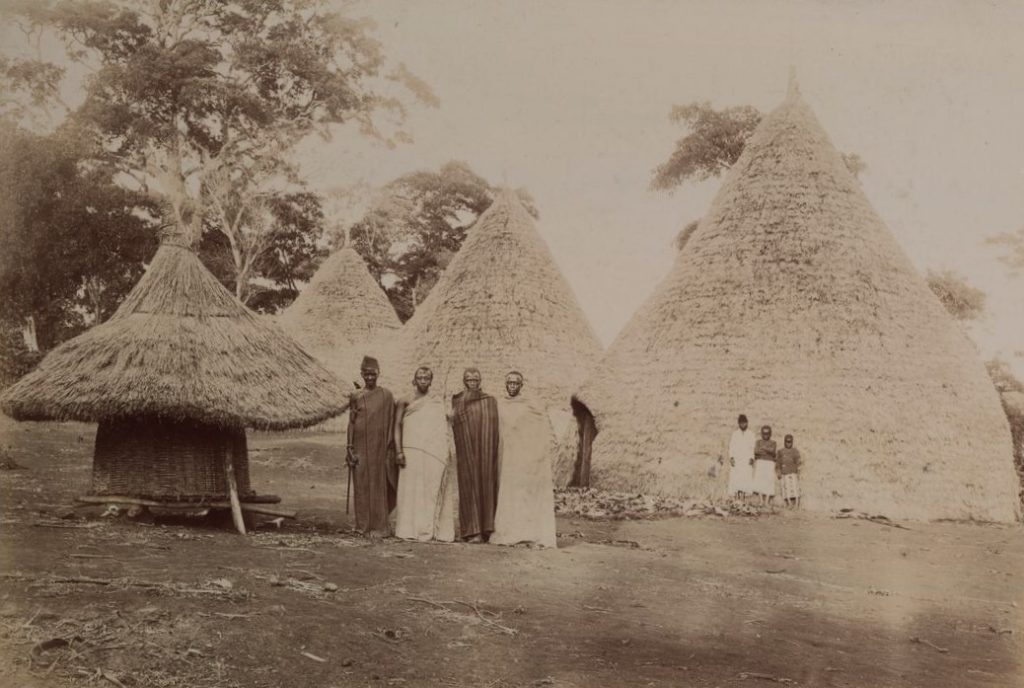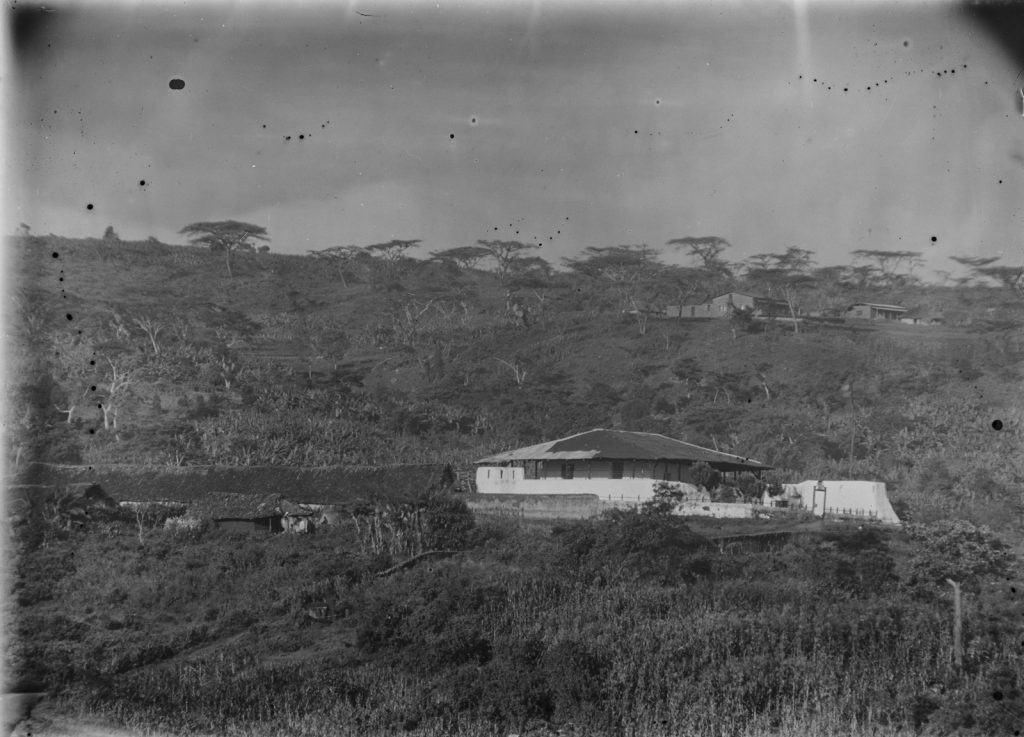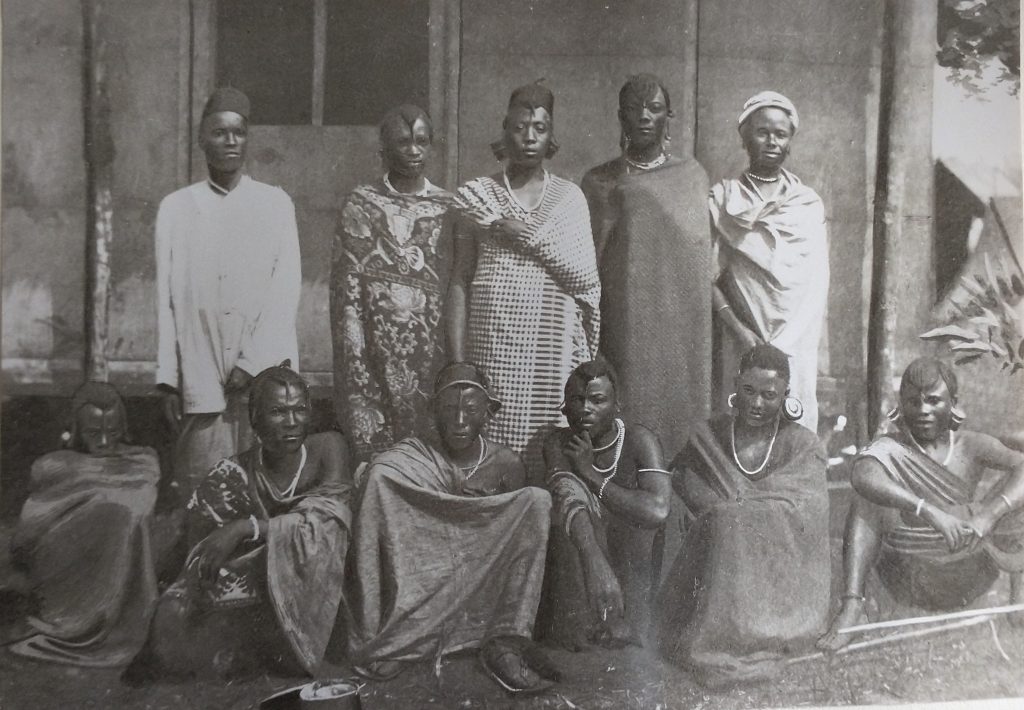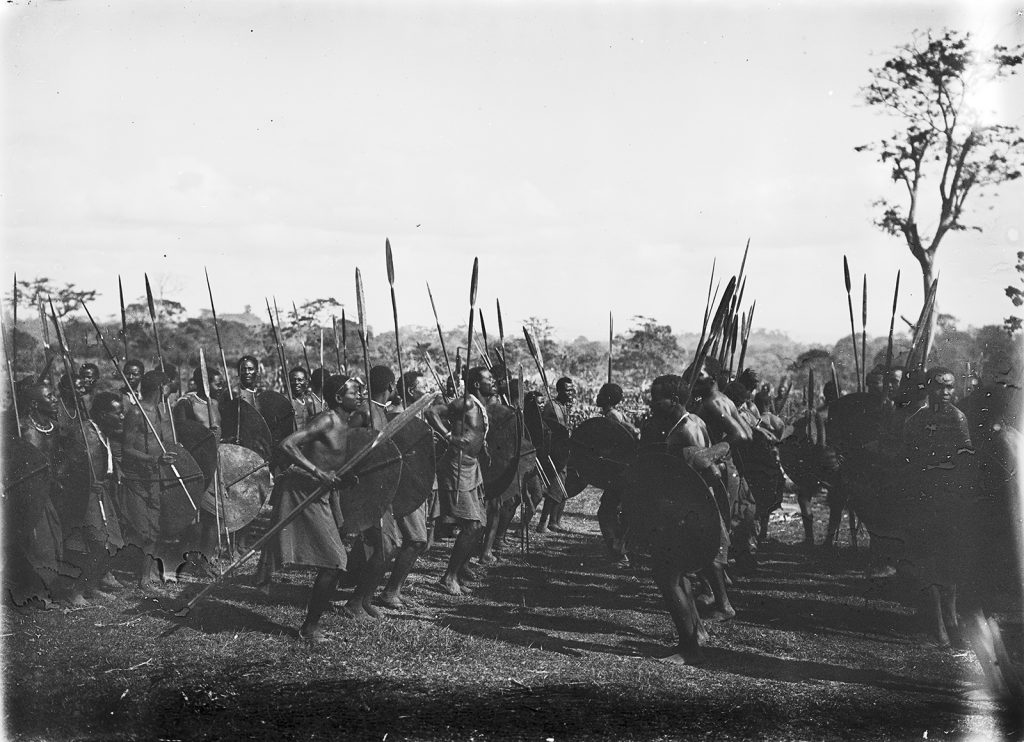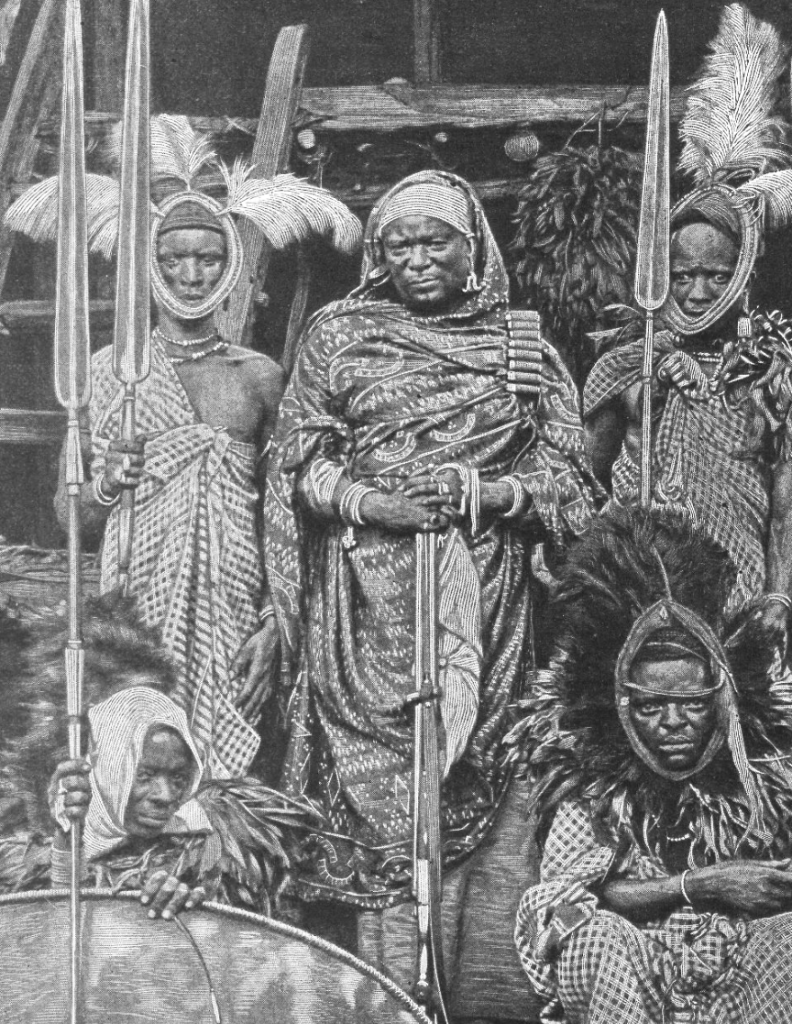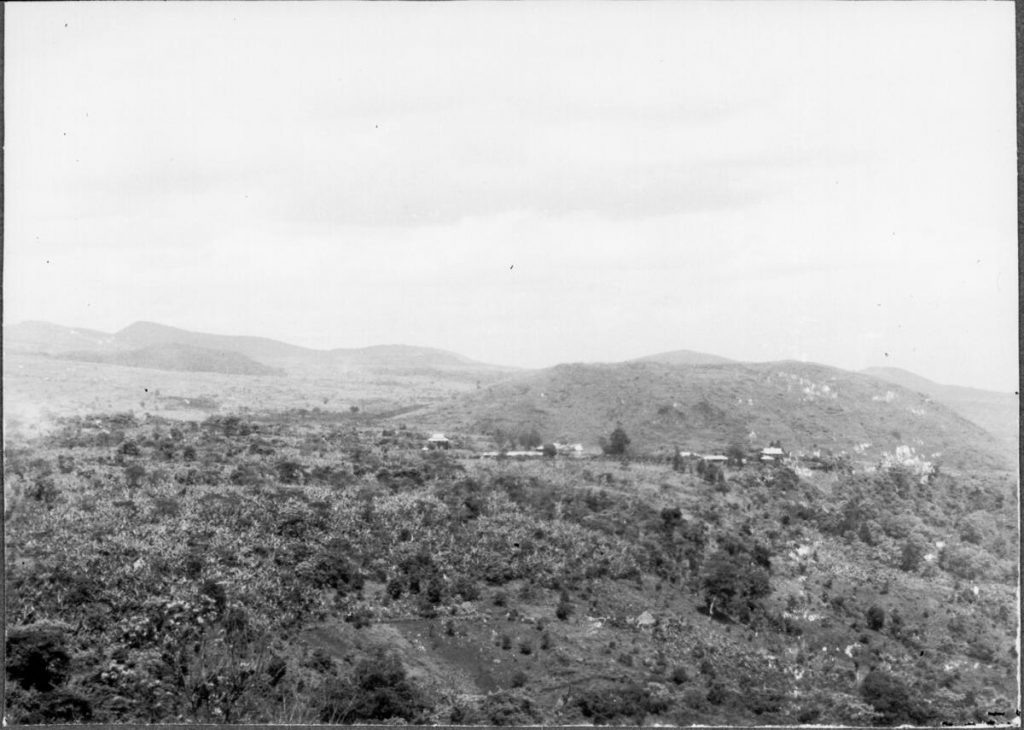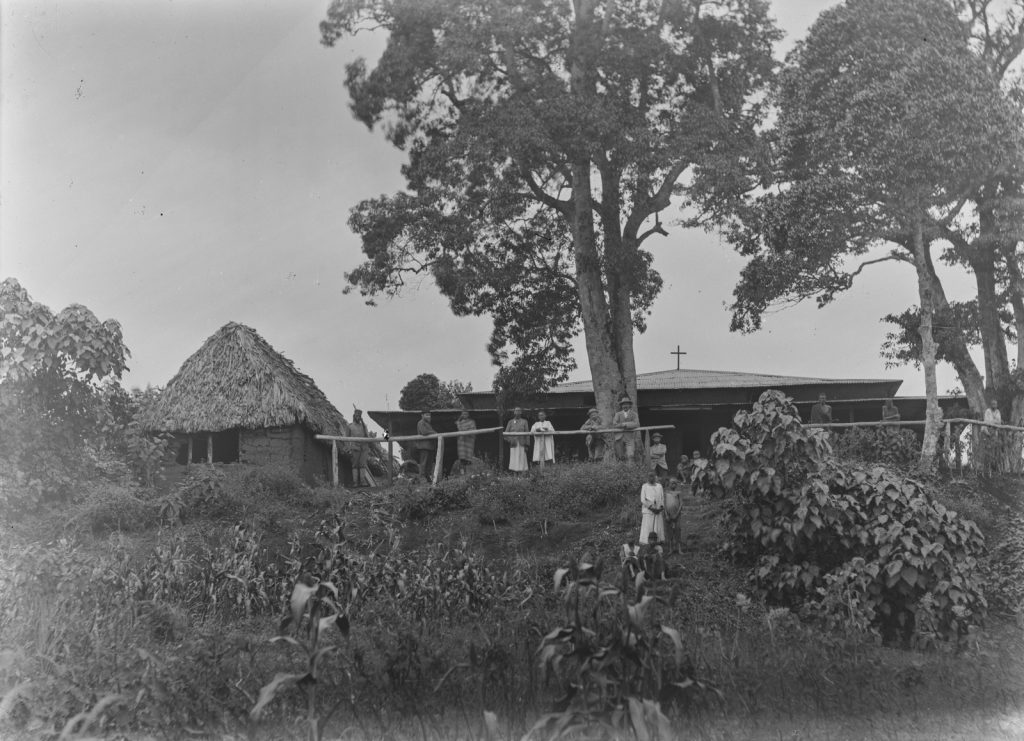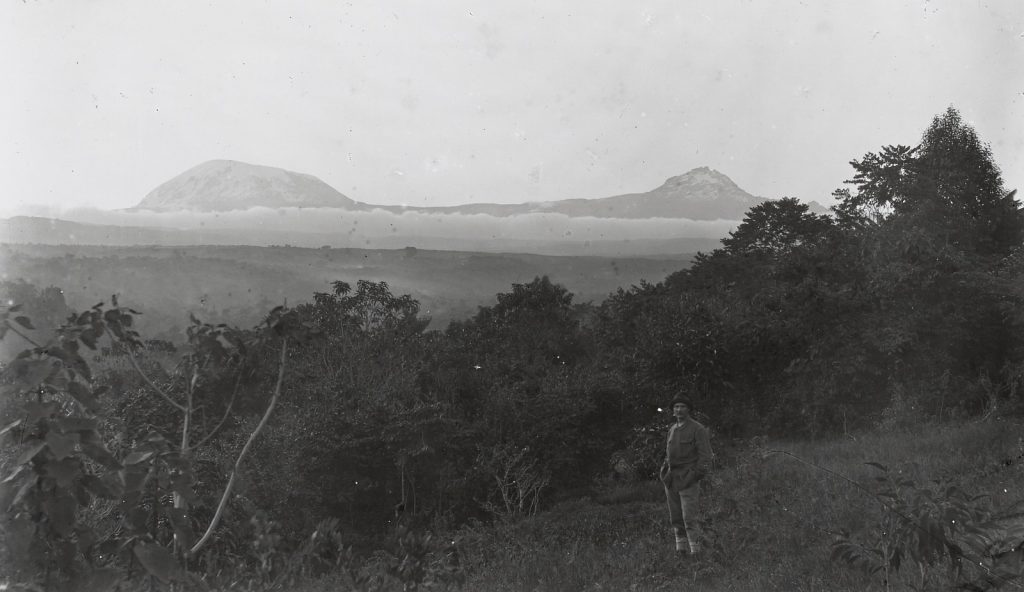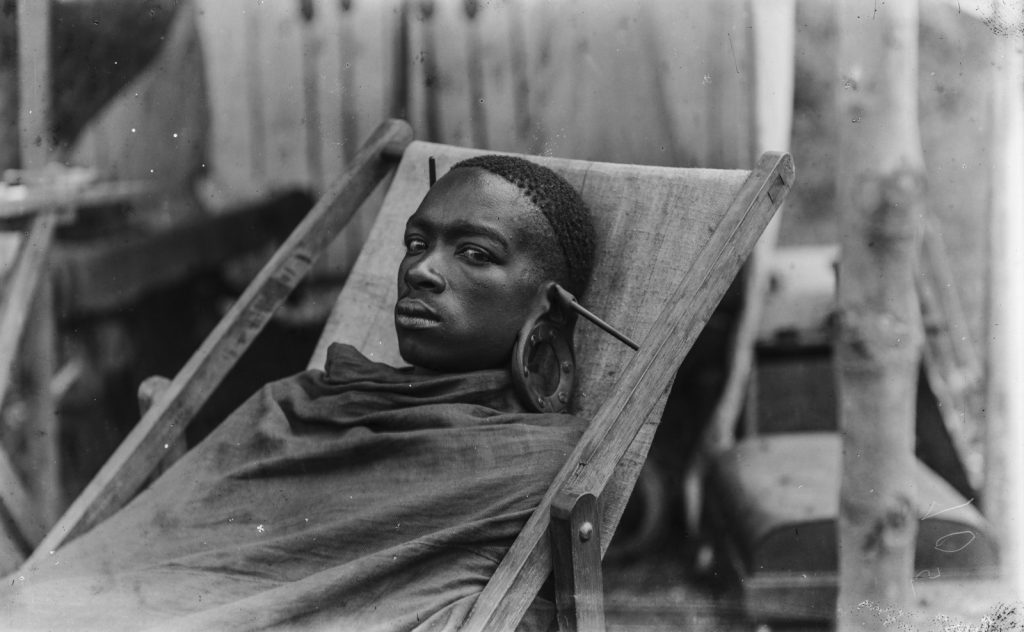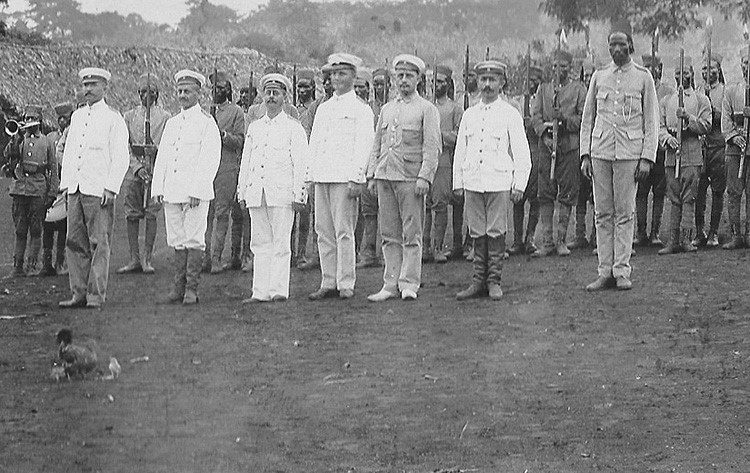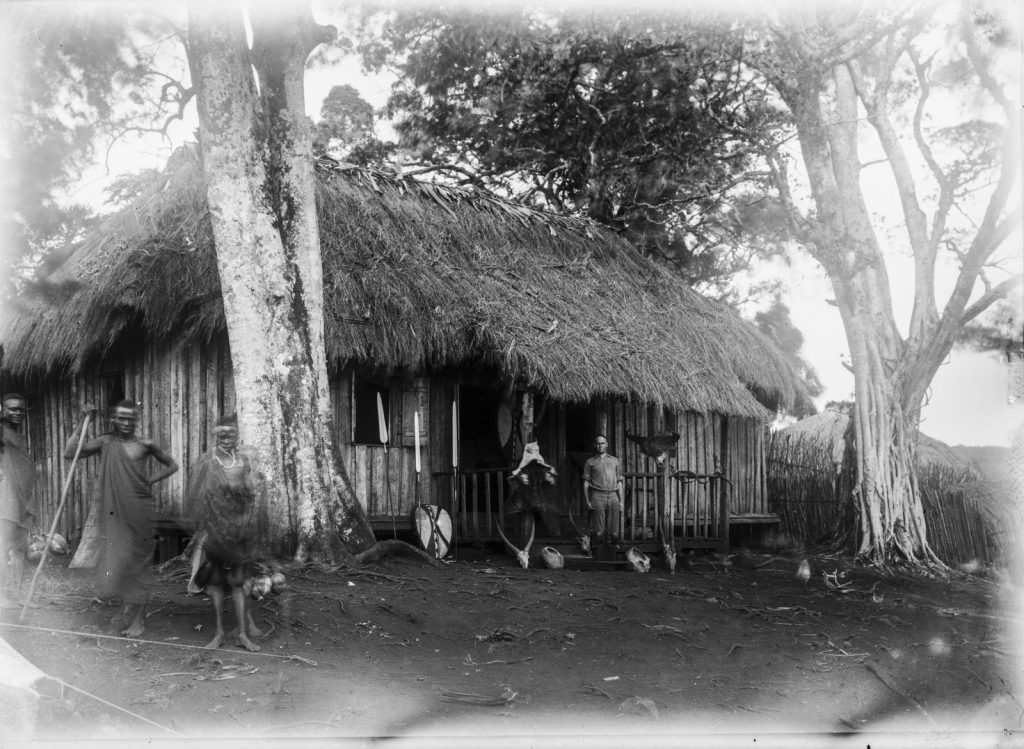Timeline
timeline of the events on kilimanjarocompiled by Hartmut Andres
This timeline provides a brief chronological overview of the events on Kilimanjaro between 1848 and 1918: the first contacts between Europeans and Wachagga and the colonial conquest of the Kilimanjaro region.
It focuses on the following people:
Mangi Rindi of Moshi and
his son and successor Mangi Meli
Mangi Sina of Kibosho
Mangi Mlyelyari (Marealle) of Marangu
Carl Peters
Kurt Johannes
Moritz Merker
Bruno Gutmann
It is based on German sources of the time, and above all on the following publications:
Kathleen M. Stahl: History of the Chagga, People of Kilimanjaro
Gabriel Ogunniyi Ekemode: German rule in north-east Tanzania, 1885 – 1914
Henry Louis Gates, Emmanuel Akyeampong, and Steven J. Niven: Dictionary of African Biography
birth of Mangi Rindi, juvenile name: Makindara, later changed by Swahili and Europeans to "Mandara“.
Johannes Rebmann, 3 journeys to Kilimanjaro, stay in Machame during the 2nd and 3rd. He is the first European of his time to see Mount Kilimanjaro and describe it in Europe. His report of perpetual snow on the Aquator is met with disbelief there.
birth of Carl Peters.
Rindi becomes Mangi of Moshi.
Karl Klaus von der Decken: 1st Kilimanjaro expedition, from Machame.
Karl Klaus von der Decken: 2nd Kilimanjaro expedition, from Moshi.
birth of Kurt Johannes.
birth of Mangi Meli.
Kilimanjaro expedition of the british missionary Charles New from Moshi, brings (possibly on behalf of Rindi) snow from Mount Kilimanjaro.
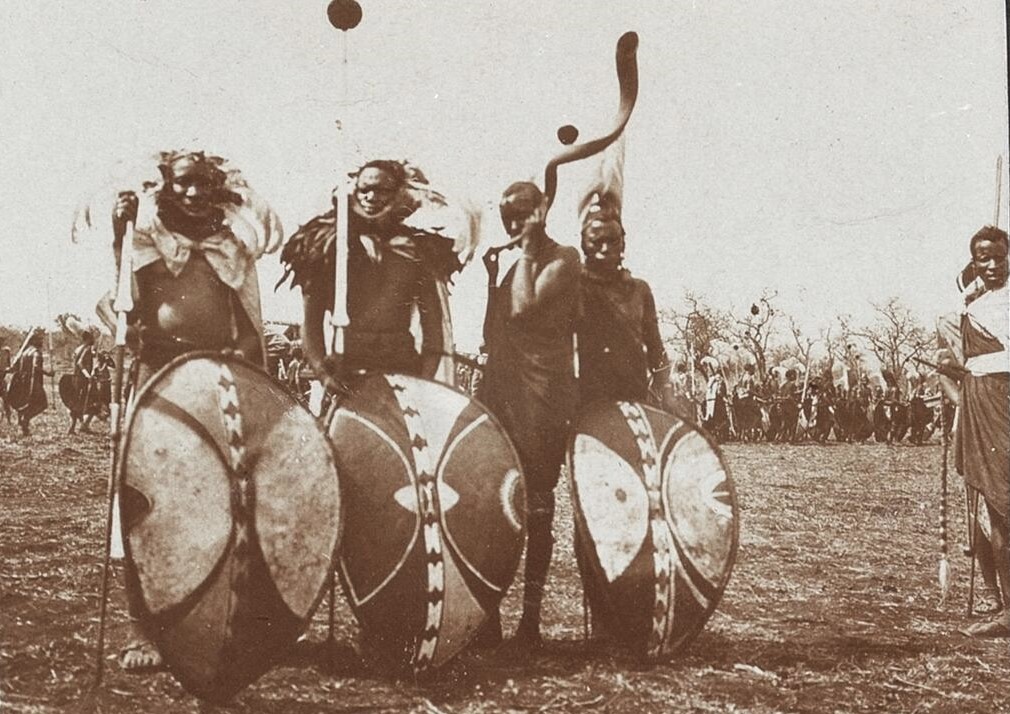
Rindi's military campaign against Useri (Rombo) ends with a crushing defeat, exile in Kahe and later Machame.
birth of Bruno Gutmann.
Sina becomes Mangi of Kibosho, first as regent then as ruler.
with support of Arusha, Rindi becomes Mangi of Moshi again.
Marealle becomes Mangi of Marangu.
on the initiative of Carl Peters the DOAG: Deutsch-Ostafrikanische Gesellschaft (German East Africa Company) was founded in Berlin.
Kilimanjaro expedition by Harry H. Johnston from Moshi on behalf of the Royal Geographical Society: treaties with rulers in preparation for annexation of the territory by the British.
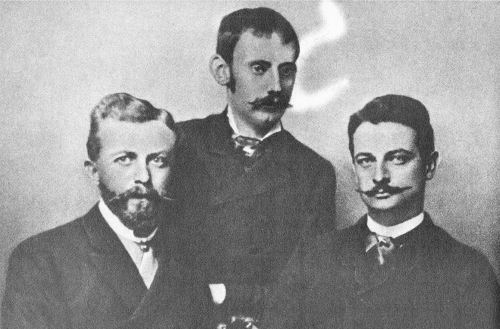
Carl Peters, Karl Jühlke and Joachim Graf von Pfeil travel from Zanzibar to mainland Tanganyika on behalf of DOAG and try to "negotiate" "protection treaties" with local chiefs.
Karl Jühlke and Mangi Rindi sign a "protection treaty" with DOAG.
the Anglican Mission Station (CMS) in Kitirimbihu, Moshi is founded by Alexander Fitch and Joseph Ray.
Demarcation of spheres of interest in East Africa between Germany and Great Britain, the Kilimanjaro region comes under German influence.
expedition by count Teleki and Ludwig Höhnel, attempt to climb Mount Kilimanjaro from Marangu.
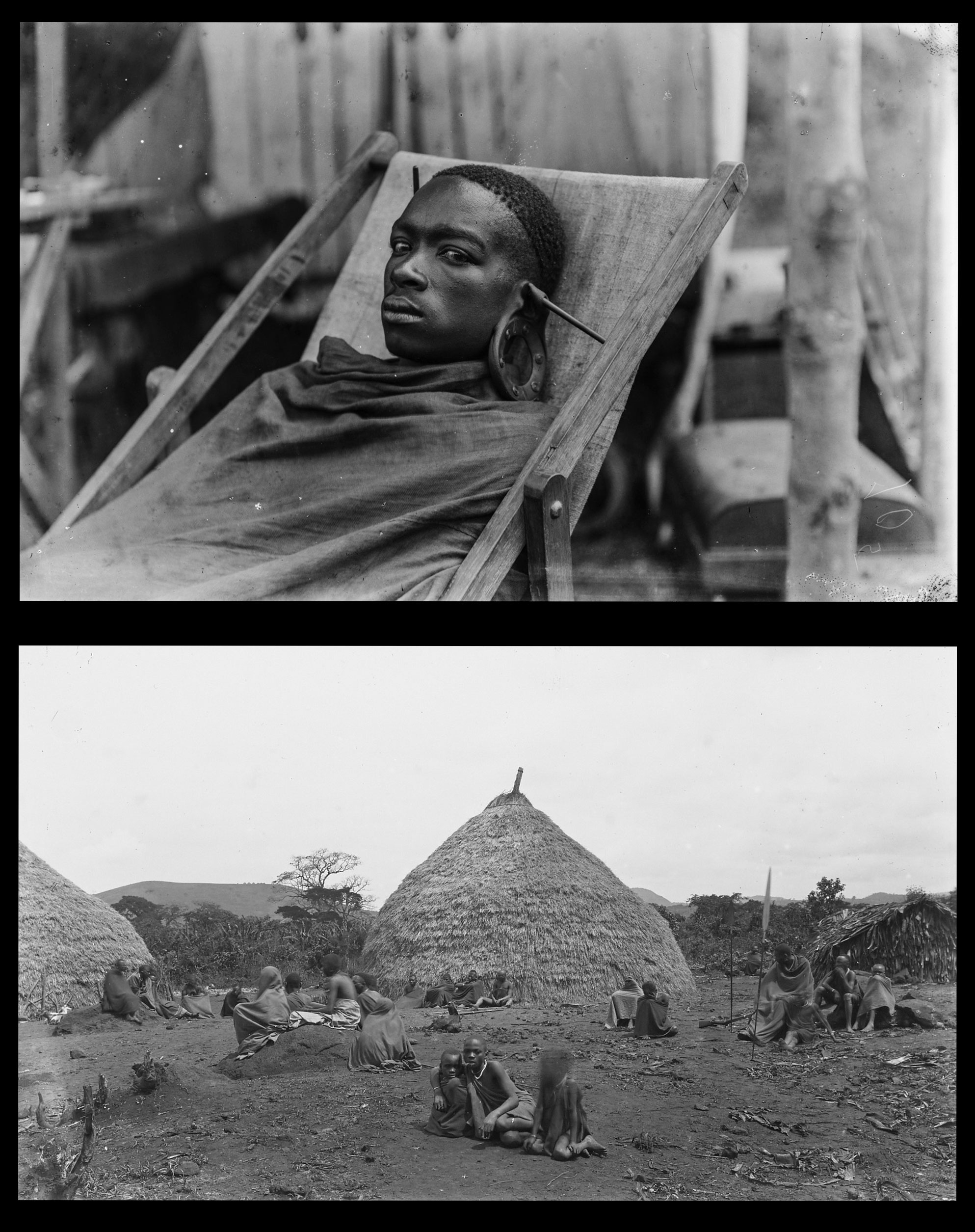
Hans Meyer: 1st Kilimanjaro expedition, attempt to climb Mount Kilimanjaro from Marangu. First photos from the region.
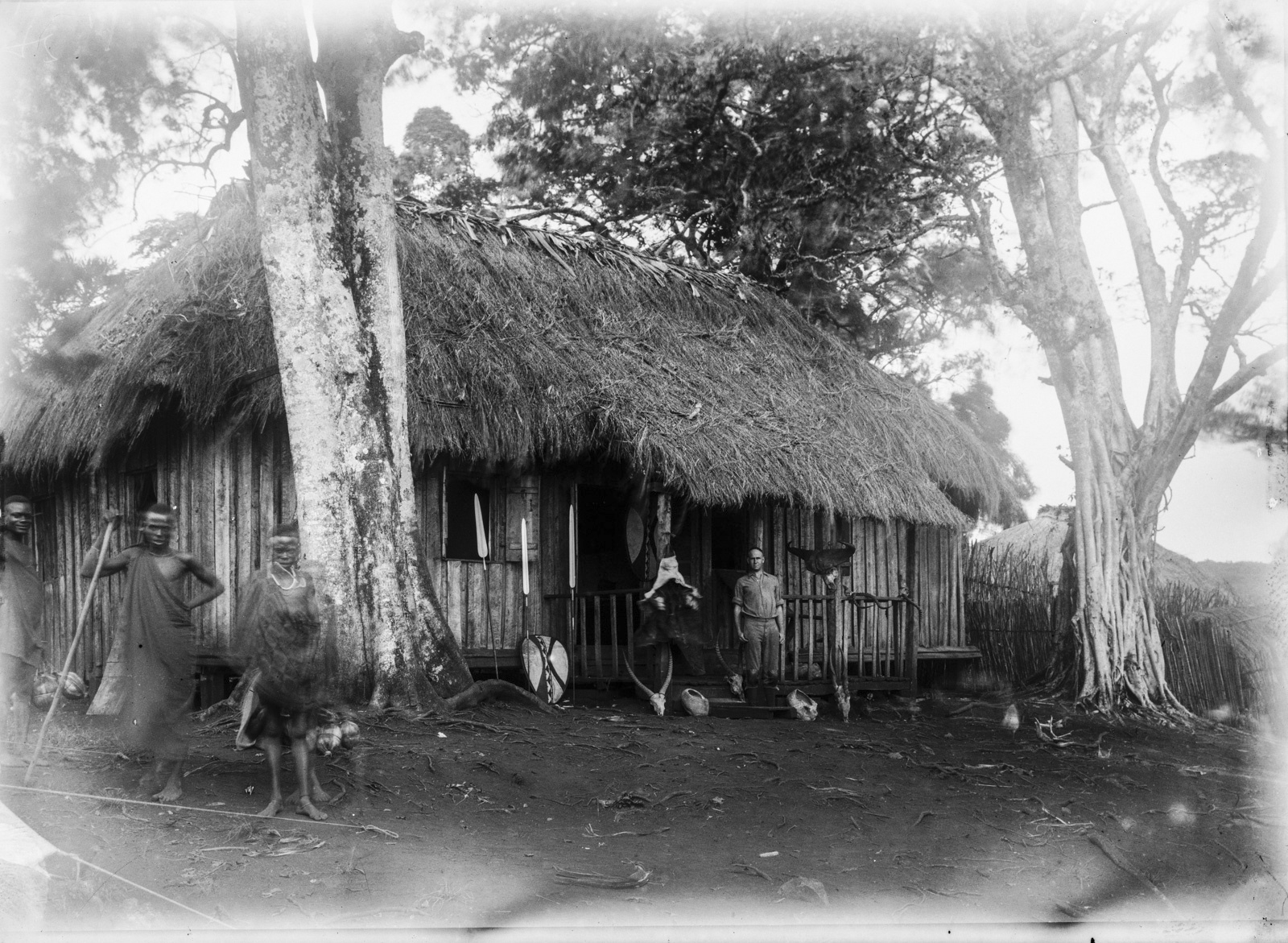
A DOAG-station is established in Moshi, occupied (probably only temporarily) by Otto Ehlers.
brutal war campaigns by Mangi Sina against Machame, which ends with the almost complete annihilation of the male population. Sina becomes the most powerful ruler on the Kilimanjaro.
Revolt of the coastal people (under Bushiri) against German rule. Kurt Johannes' first military mission in East Africa as station commander in Pangani.
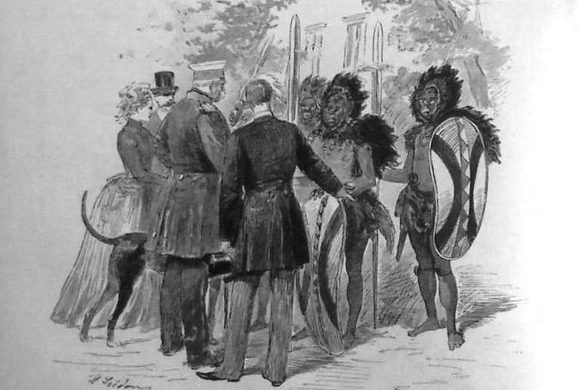
Wachagga legation in Berlin (welcomed by Otto von Bismarck and Kaiser Wilhelm) organised and accompanied by Otto Ehlers.
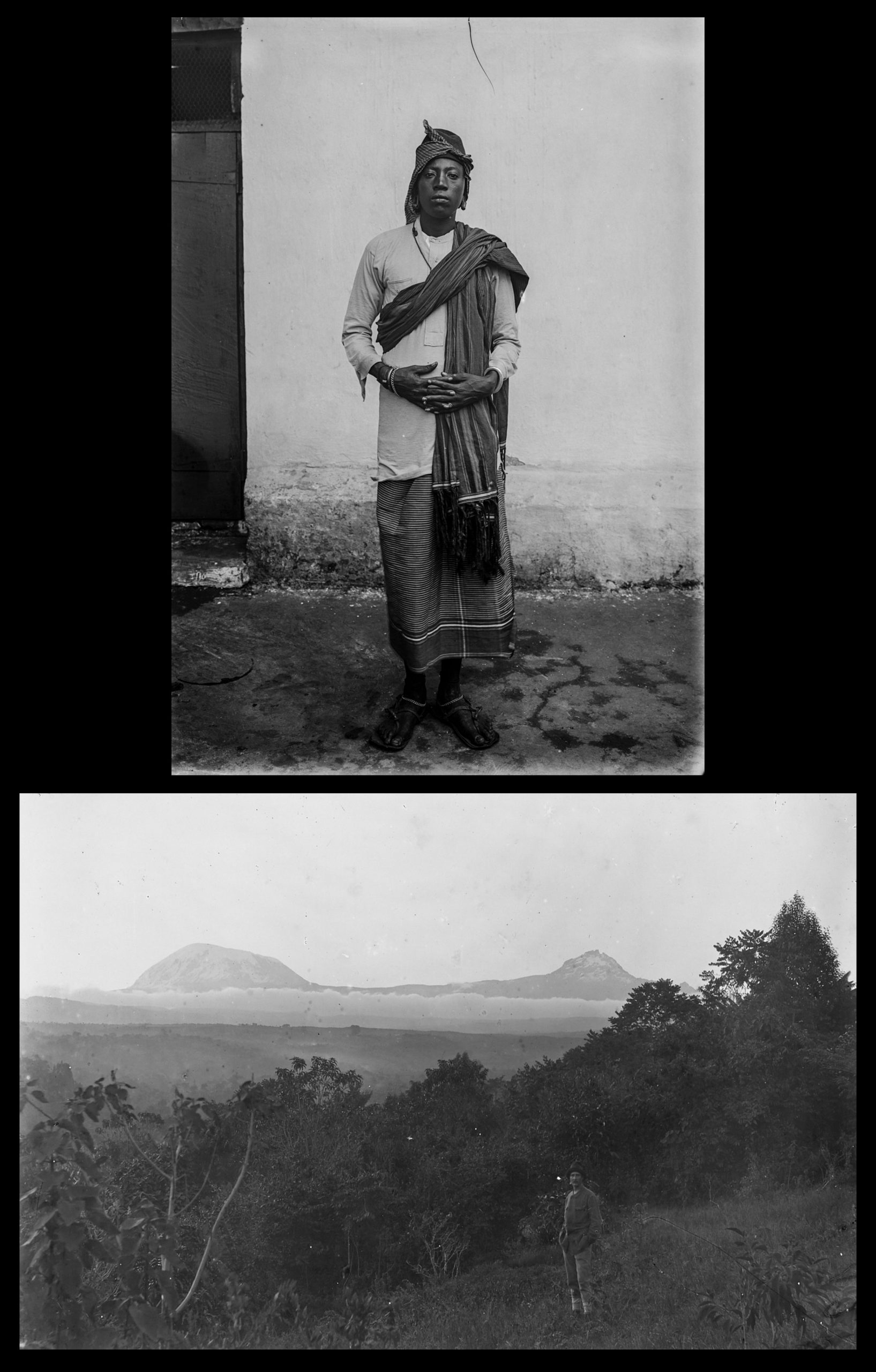
Hans Meyer: 2nd Kilimanjaro expedition, first ascent of Mount Kilimanjaro (6.10.) from Marangu.
Helgoland - Zanzibar treaty.
CMS missionary Fitch is replaced by Alexander Steggall and Dr Baxter.
Mangi Rindi is ill (spinal tuberculosis?) and confined to bed.
German East Africa officially becomes a German colony; Carl Peters becomes Reichskommissar for the Kilimanjaro region.
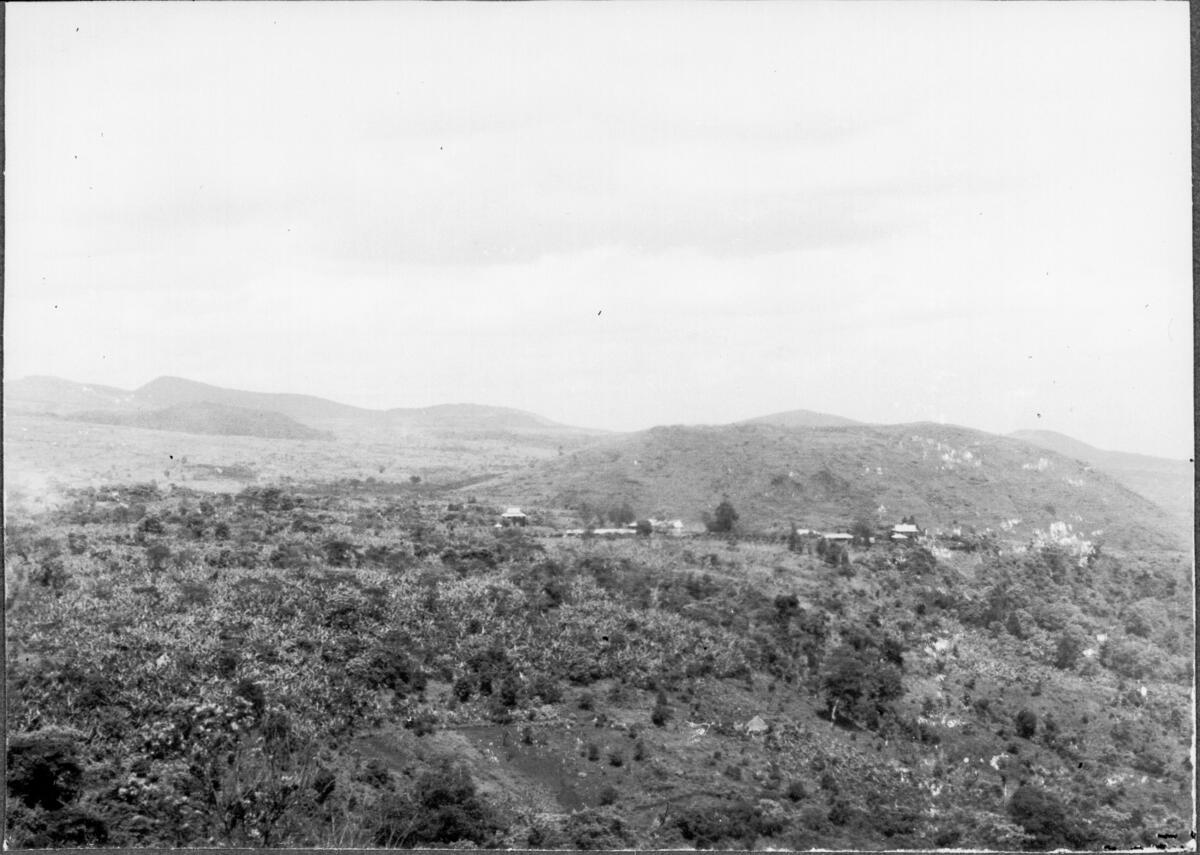
the Catholic mission in Kilema is founded.
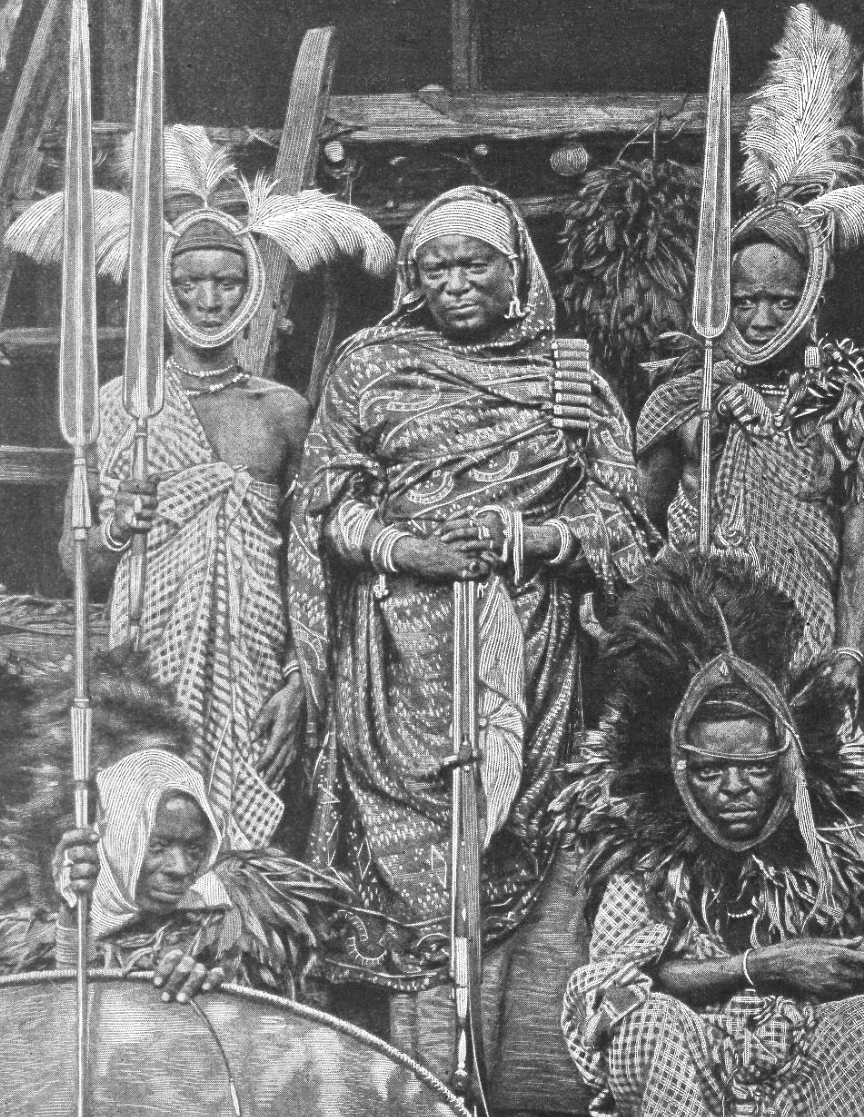
Military campaign and subjugation of Mangi Sina in Kibosho by the German "Schutztruppe" under the command of Herrmann von Wissmann and Kurt Johannes, massively supported by Mangi Rindi. Sina remains Mangi of Kibosho.
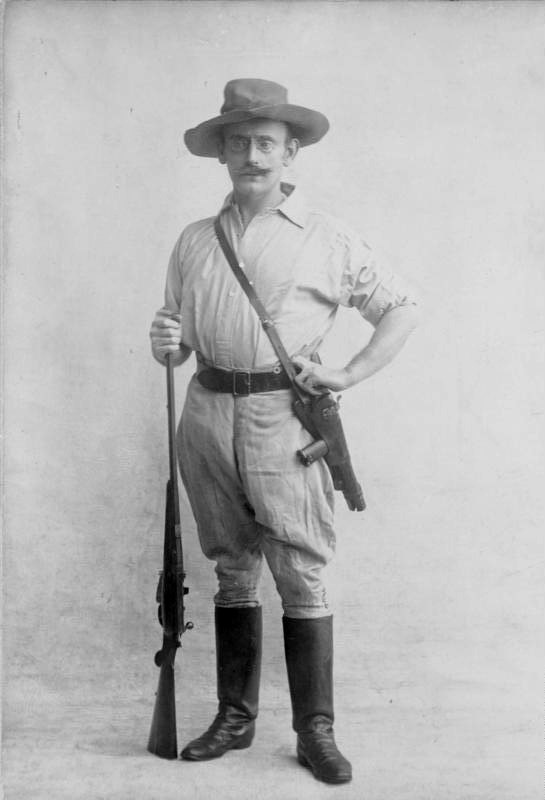
Carl Peters takes over the German Moshi station.
shortly before Mangi Rindi's death, the German station is moved by Carl Peters from Moshi to Marangu.
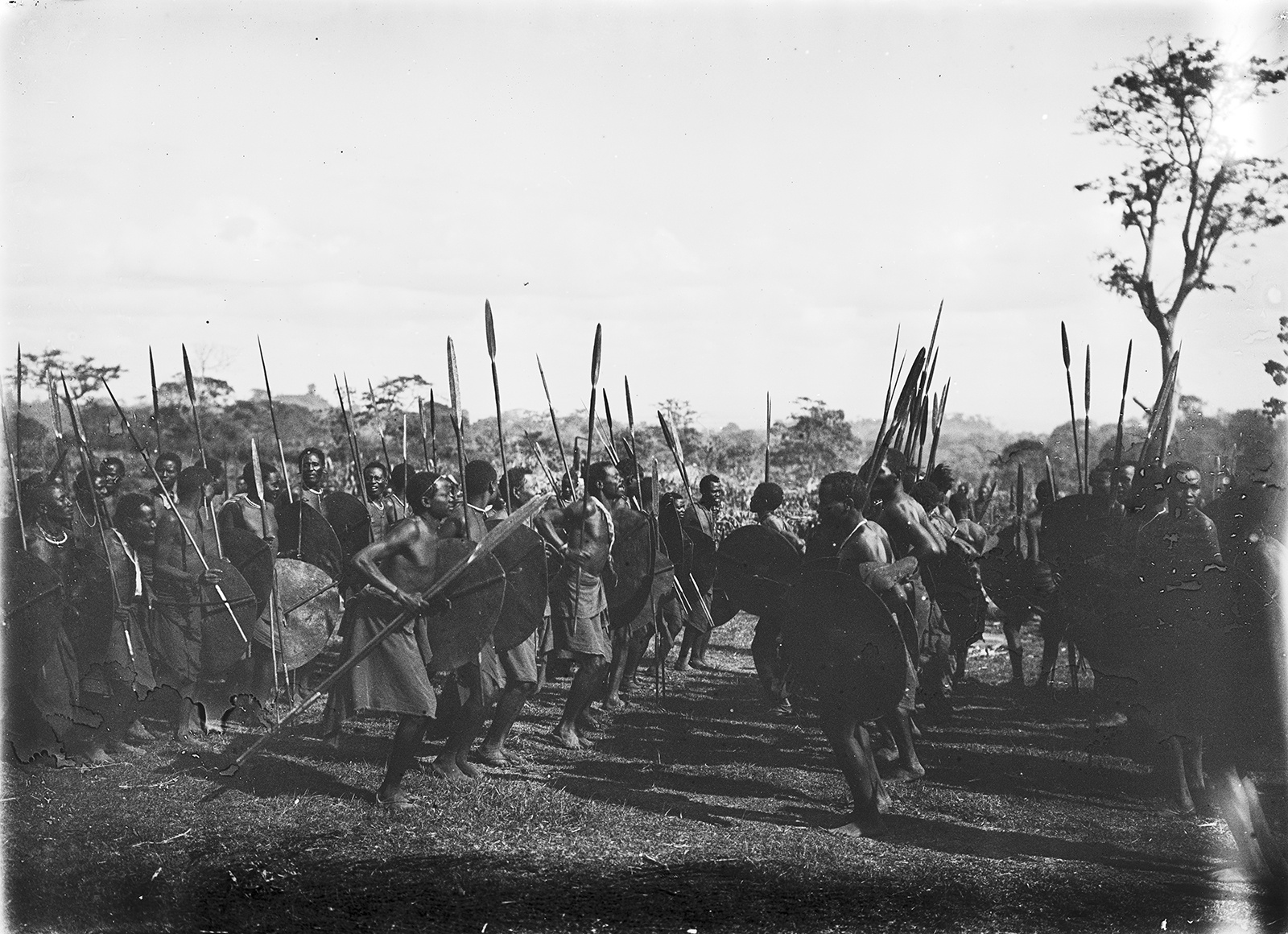
military campaign under the command of Carl Peters against the Warombo from Marangu, supported by Mangi Marealle.
second campaign against the Warombo under the command of Carl Peters and Kurt Johannes, massively supported by warriors from Mangi Sina and Mangi Marealle. Brutal methods: Homesteads burnt down, shelter caves fumigated, people murdered and sold into slavery.
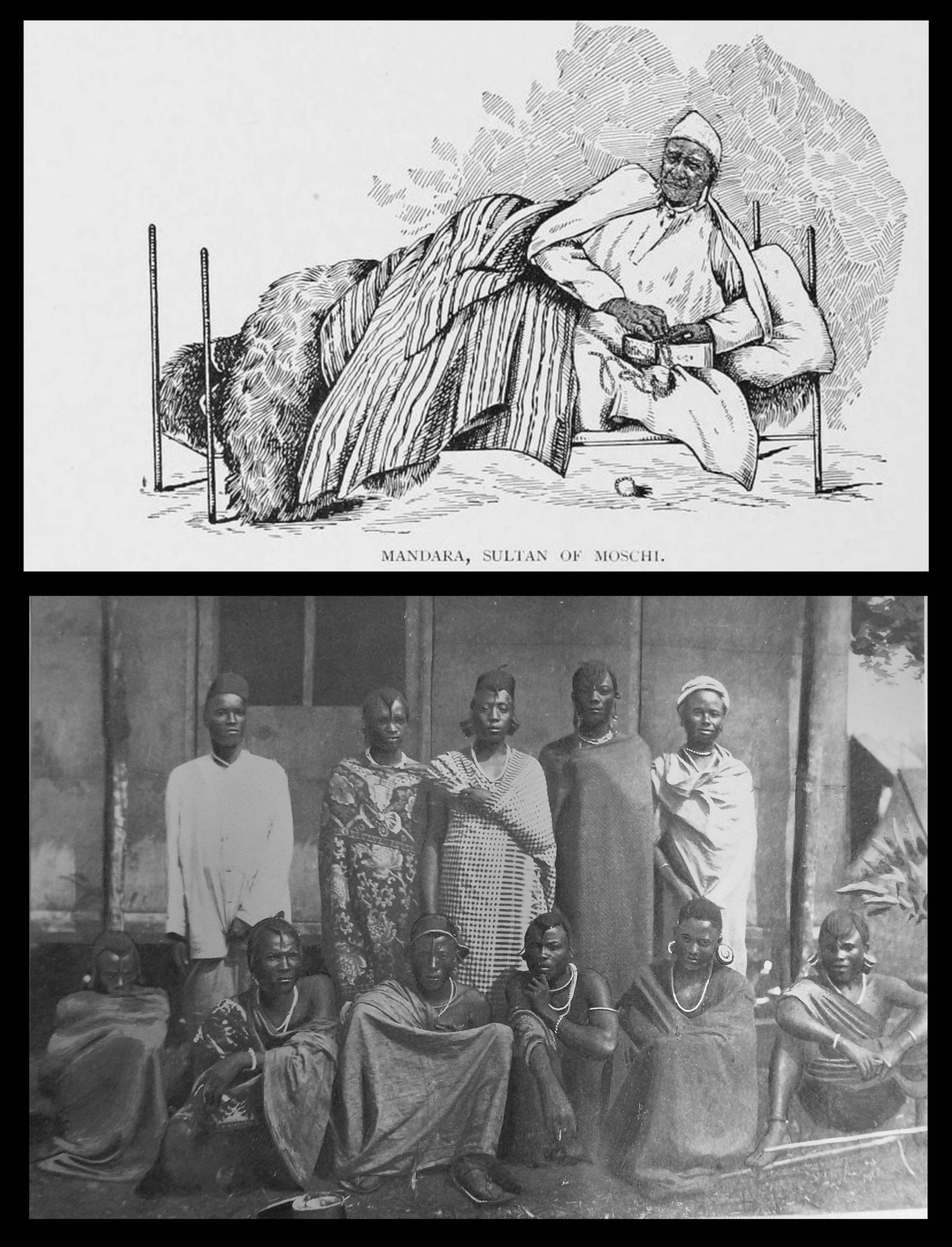
death of Mangi Rindi.
Throne succession dispute; after his brother Kirita is killed, the reign of Mangi Meli begins.
Carl Peters let his servant Mabruk hang, and later, after several escape attempts, his sex slave Ndekocho d/o Sawiyo Meela as well. Both were accused by him of having entered into a relationship. Peters' brutal and sadistic behaviour outraged parts of the public in Germany.
War against the Wahehe (southern highlands around Iringa) under Chief Mkwawa, from 1896 "scorched earth" as a tactic to break the resistance; 1898 death of Mkwawa.
first baptisms in Moshi by the CMS (during bishop Tucker's visit).
Carl Peters is ordered back to Berlin, military station in Marangu first commanded by Albrecht von Bülow, then by Wilhelm Wolfrum.
"Kirua incident": an askari of the German troups is killed through Wachagga, Meli's attempt to appease Wolfrum is rejected by the latter.
"Bülow disaster": during an attack as a punitive expedition against Mangi Meli by Albrecht von Bülow, supported by Mangi Sina, defeat and escape of the German troops. Death of Wilhelm Wolfrum (10.6) and Albrecht von Bülow (11.6.); Meli declares himself paramount chief of the Kilimanjaro region. Marangu station abandoned, reoccupied by Kurt Johannes in September.
the Leipzig Mission Society takes over misson from the british CMS in Kititrimbihu, Moshi, but is not yet able to occupy it.
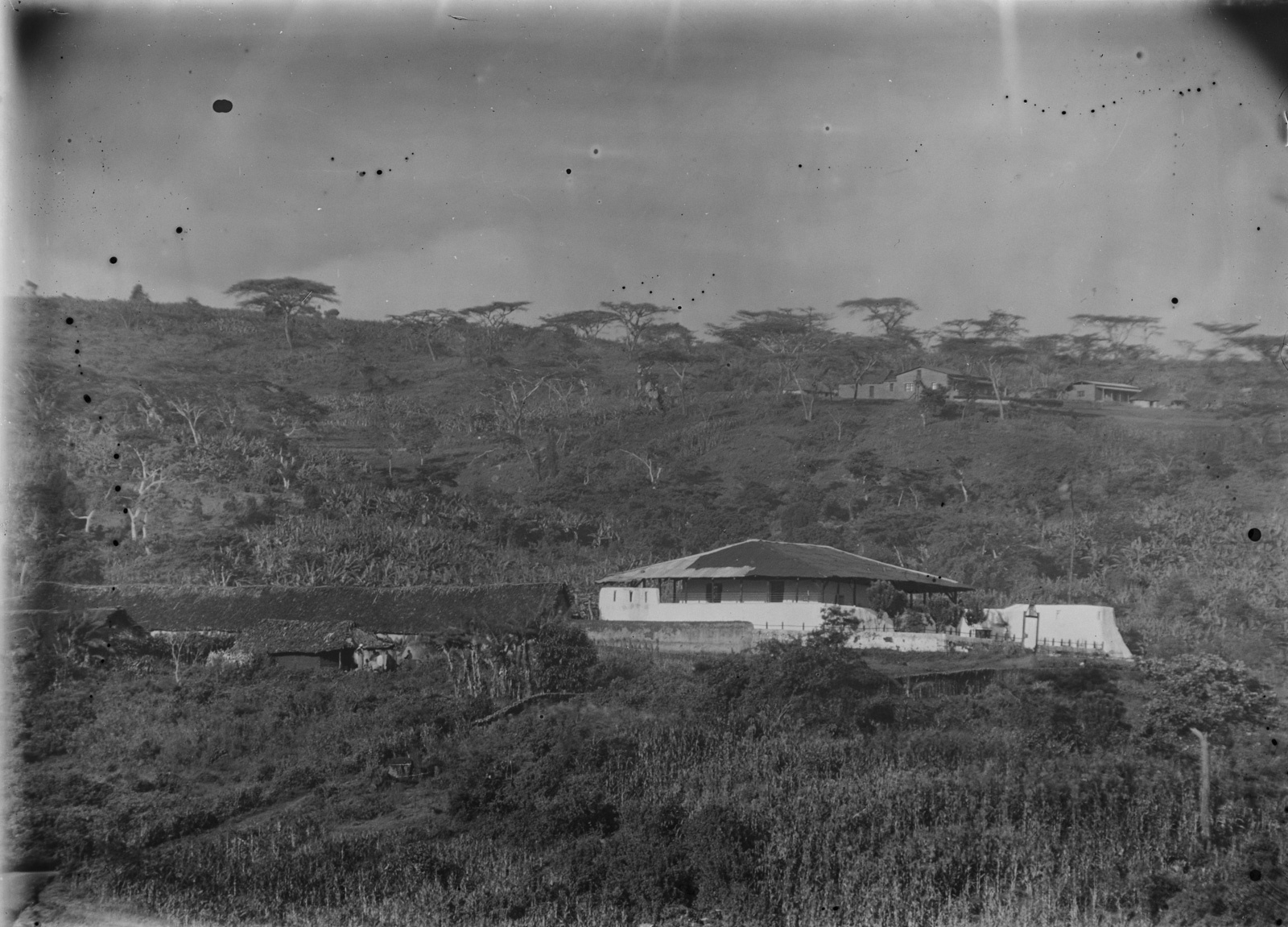
a scientific Kilimanjaro station is set up in Marangu, staffed by Dr Georg Volkens, Dr Carl Lent, and Dr Kretschmer.
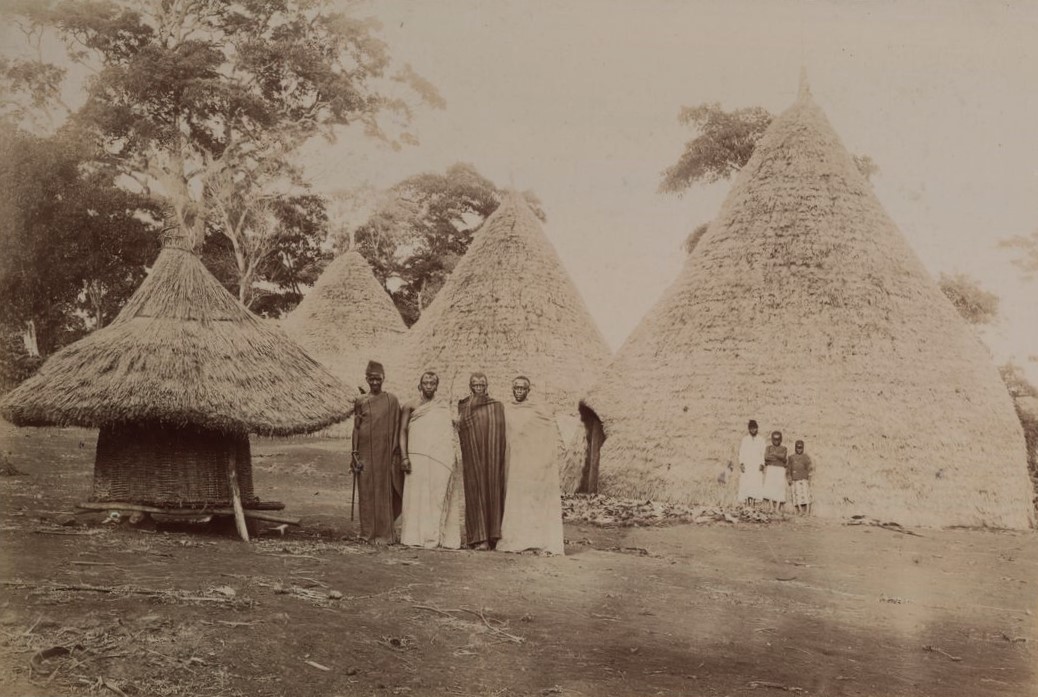
"punitive expedition" and defeat of Mangi Meli by Friedrich von Scheele and Kurt Johannes with the massive support of Mangi Sina and Mangi Marealle. Meli remains Mangi of Moshi, Mangi Sina re-established under the supervision of a Swahili akid.
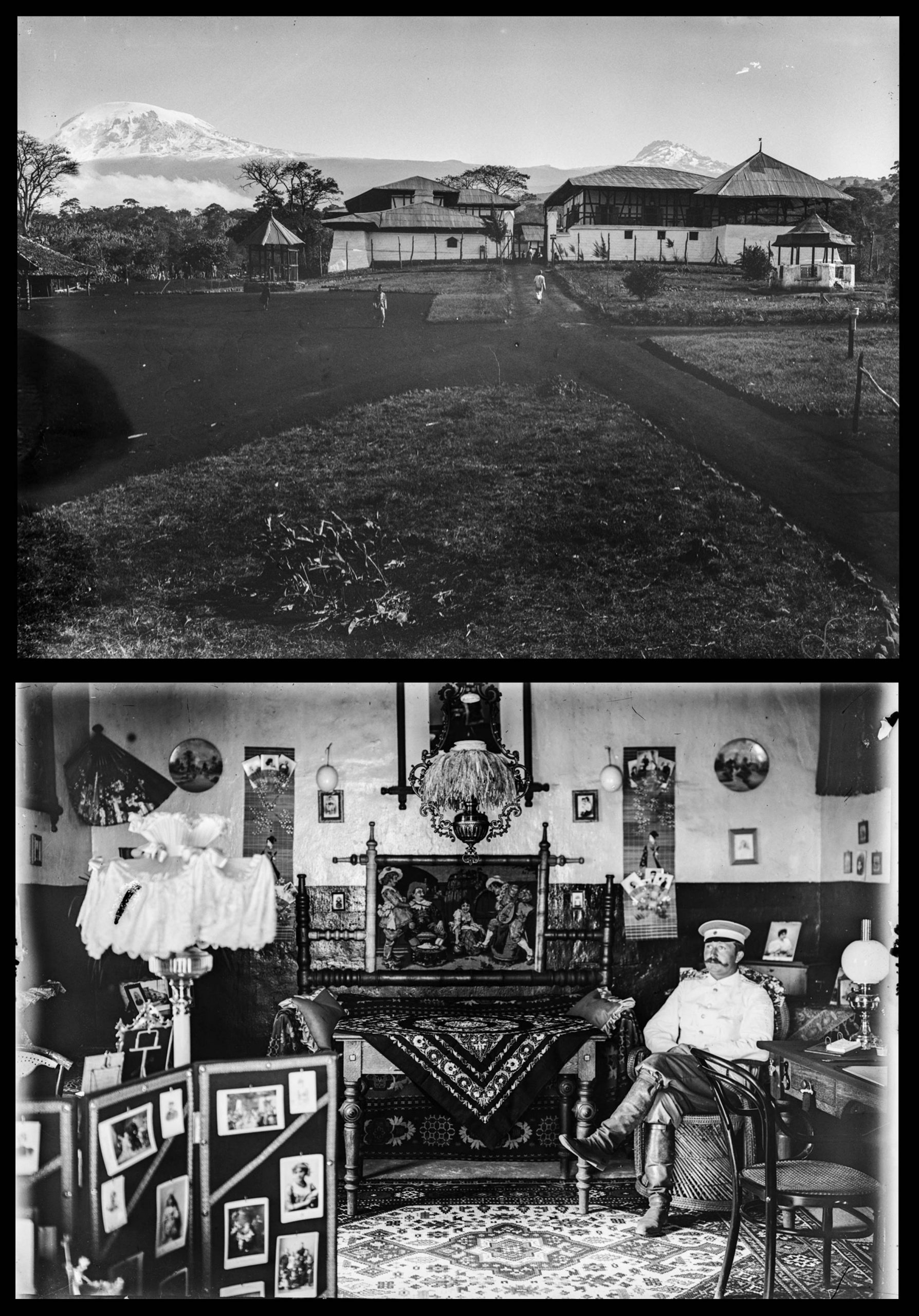
Moshi becomes administrative centre, a new military station is built using stones from Mangi Rindi's boma; Kurt Johannes becomes commander.
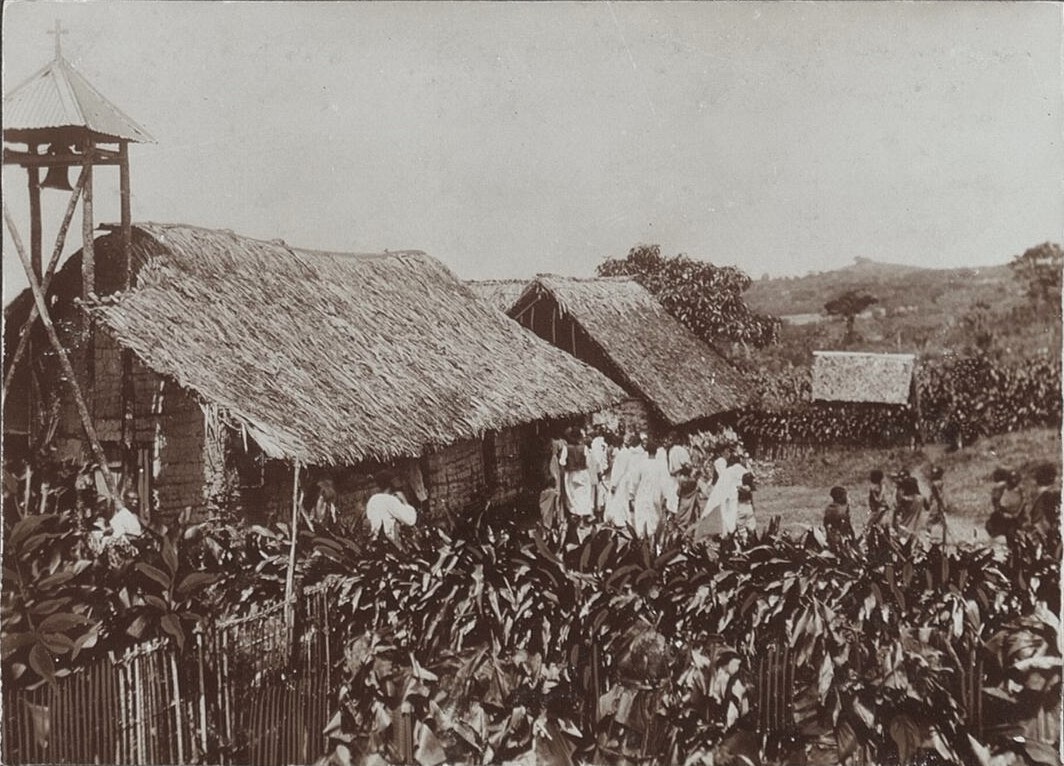
first Leipzig Mission station in Machame, Mangi Shangali provides land. Missionaries are Gerhard Althaus, Emil Müller, Robert Faßmann, and Albin Böhme. It was initially planned as a replacement for the closed CMS mission in Moshi, but there os no capacity due to construction of the new military station. Head is missionary Emil Müller.
second Catholic mission station in Kibosho.
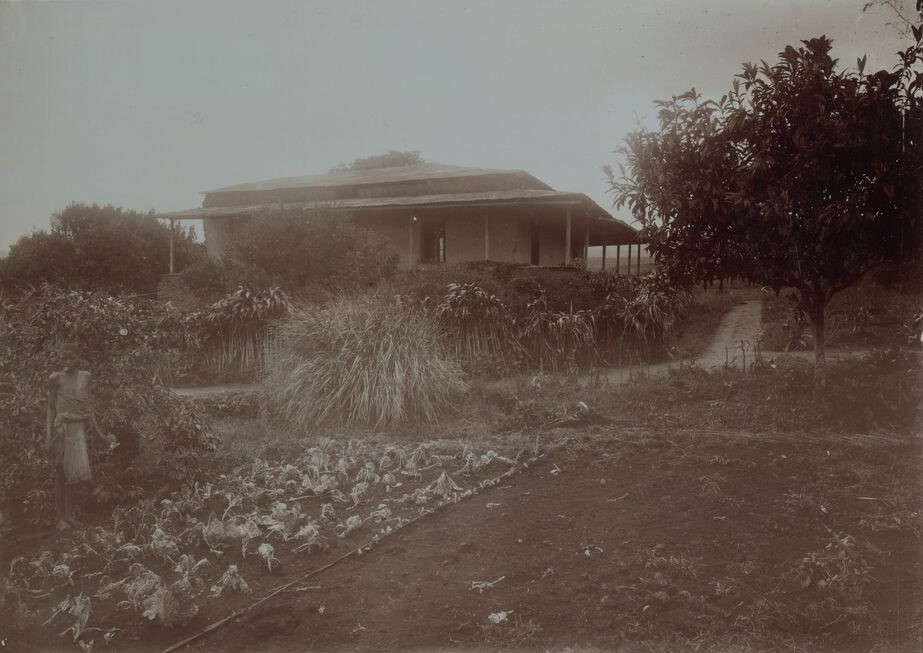
second Leipzig Mission station is founded in Mamba: Ashira (near Marangu), missionary is Gerhard Althaus.
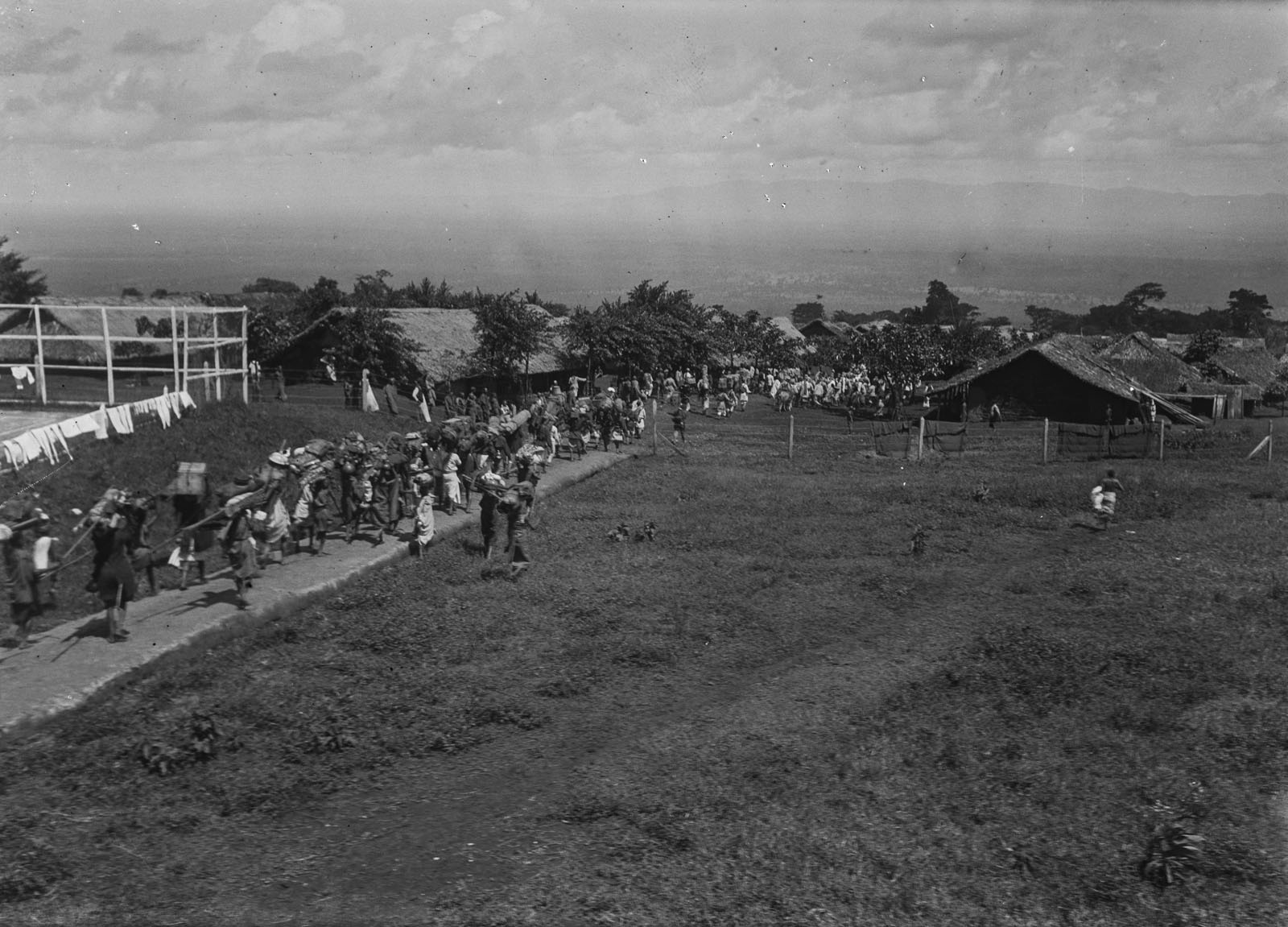
Dr Lent and Dr Kretschmer are murdered in Kerua in the Rombo region during a scientific expedition, mangi there is Leikturu.
"Punitive expedition" by lieutenant Eberhard, Mangi Leikturu is hanged in Moshi.
Moritz Merker becomes Lieutenant in Moshi under Kurt Johannes and the latters deputy.
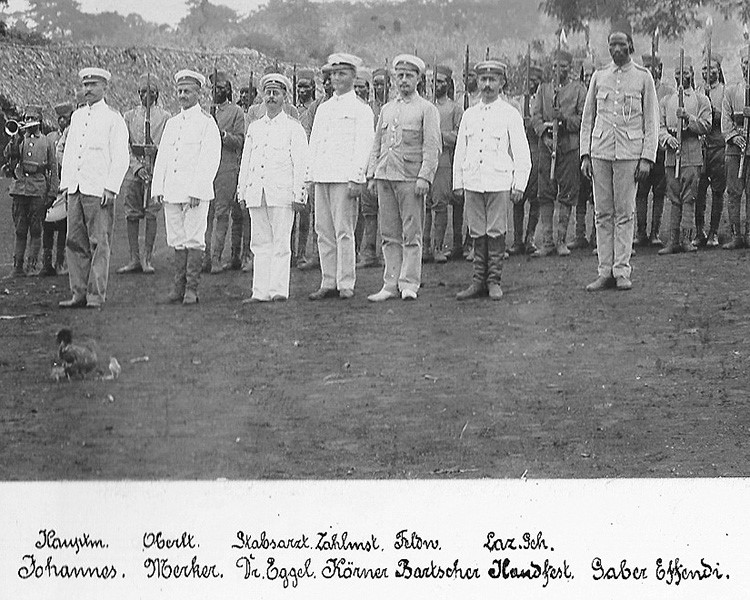
"punitive expedition" under the command of Johannes and Merker against Arusha, massively supported by a very large number of Chagga warriors from Moshi, Uru and Kibosho.
"punitive expedition" against the Maasai.
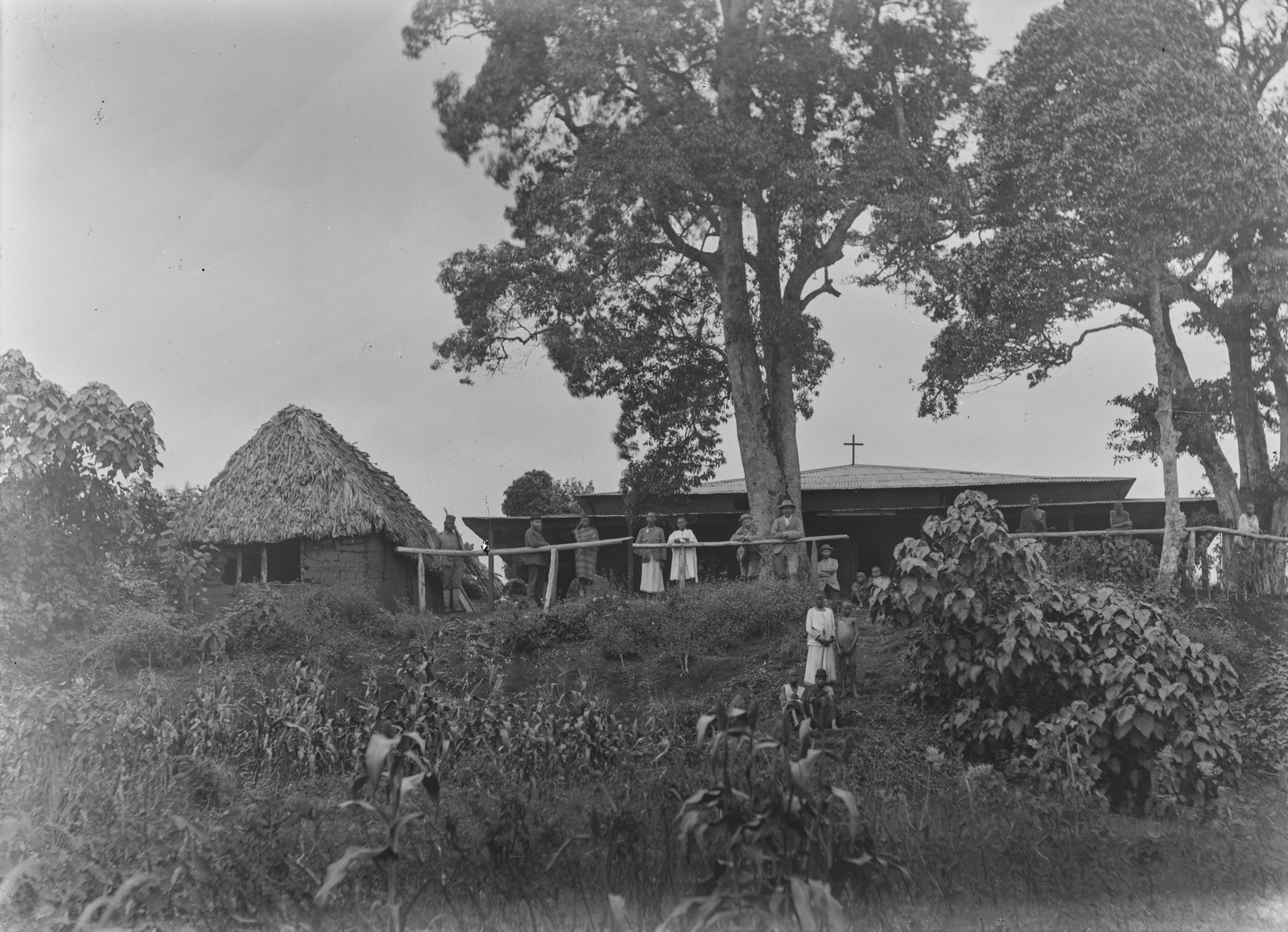
the third Leipzig Mission station is founded in Kidia (Moshi), missionary is Robert Faßmann.
attempt by the Catholic mission to establish a new station in Meru, both missionaries are only saved by the intervention of Akide Fundi (Kibosho).
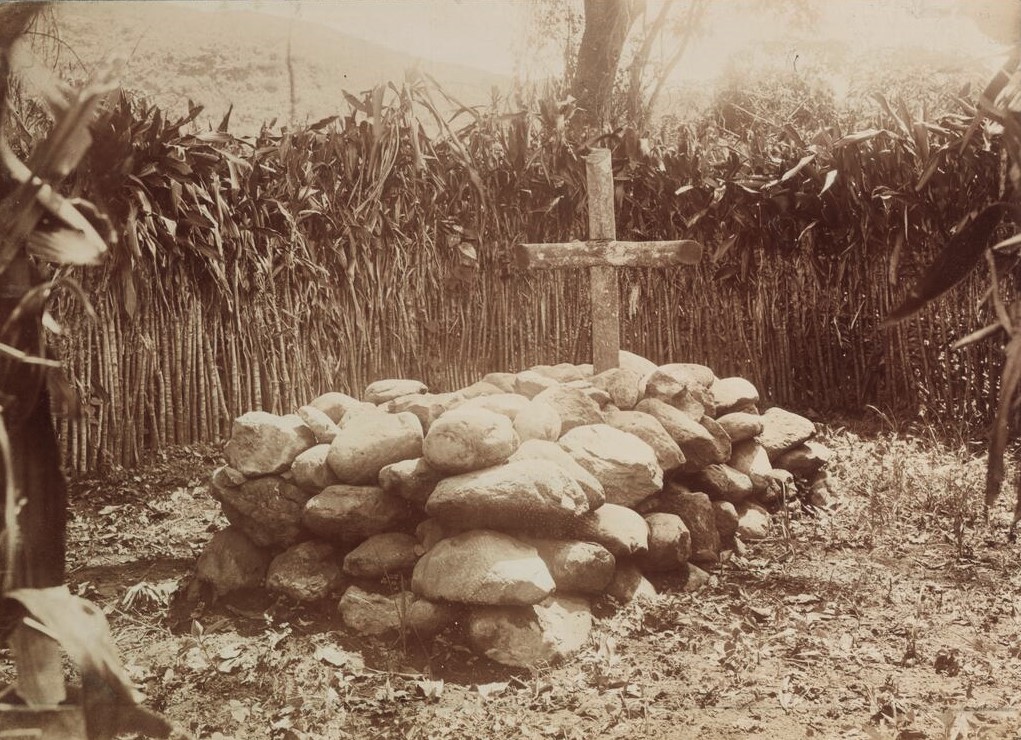
The Lutheran missionaries Segebrecht and Ovir are murdered during their attempt to establish a new mission station at Meru.
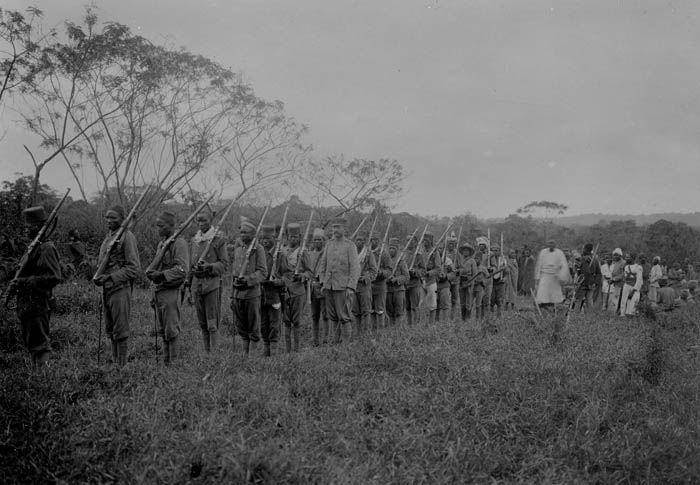
"punitive expedition" against Meru under the command of Merker with the participation of almost the entire chagga principalities, then:
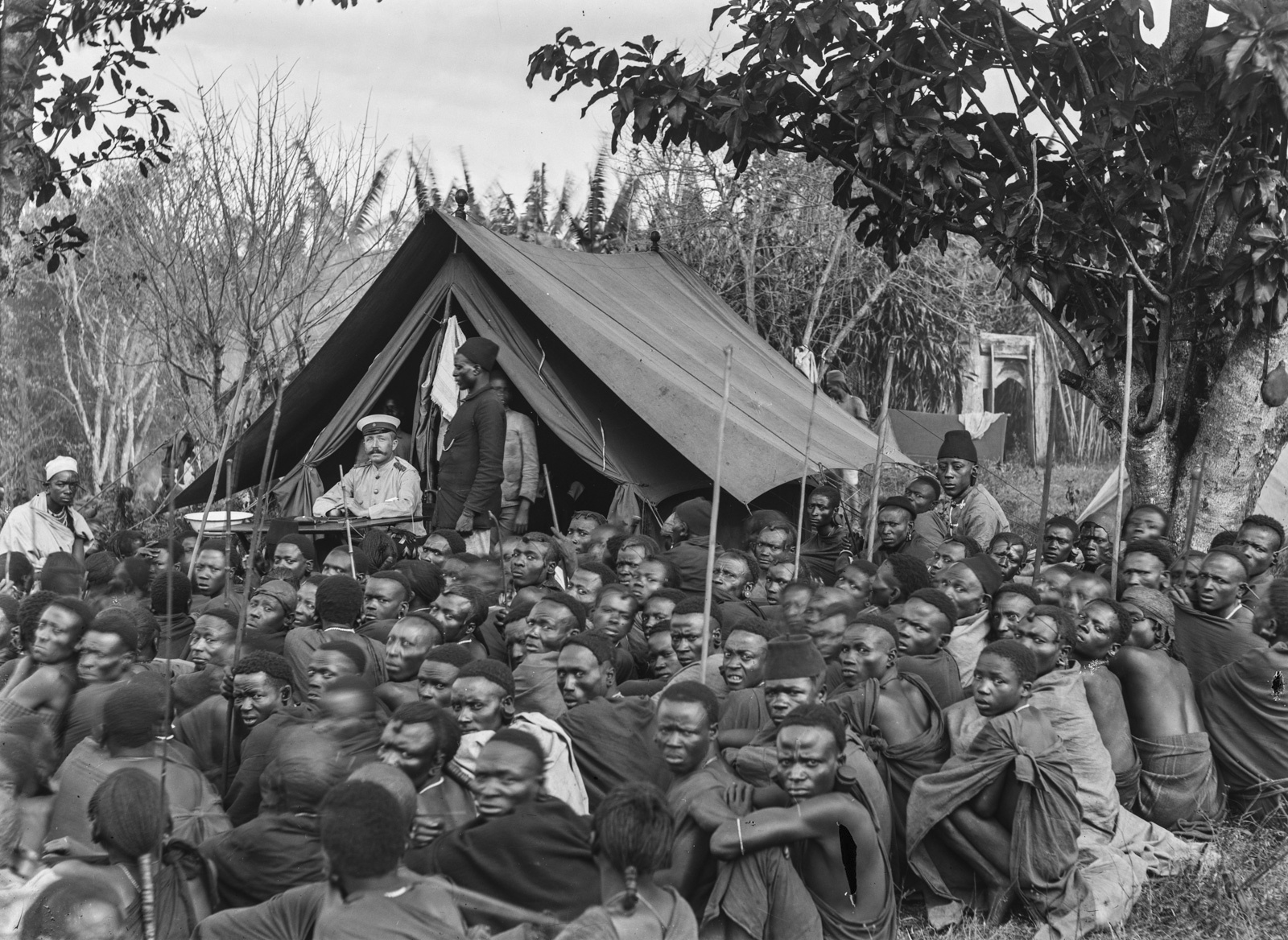
massive raids by the Wachagga near Meru, nevertheless no final victory over the Waarusha and Wameru.
Carl Peters is relieved of his position as Reichskommissar.
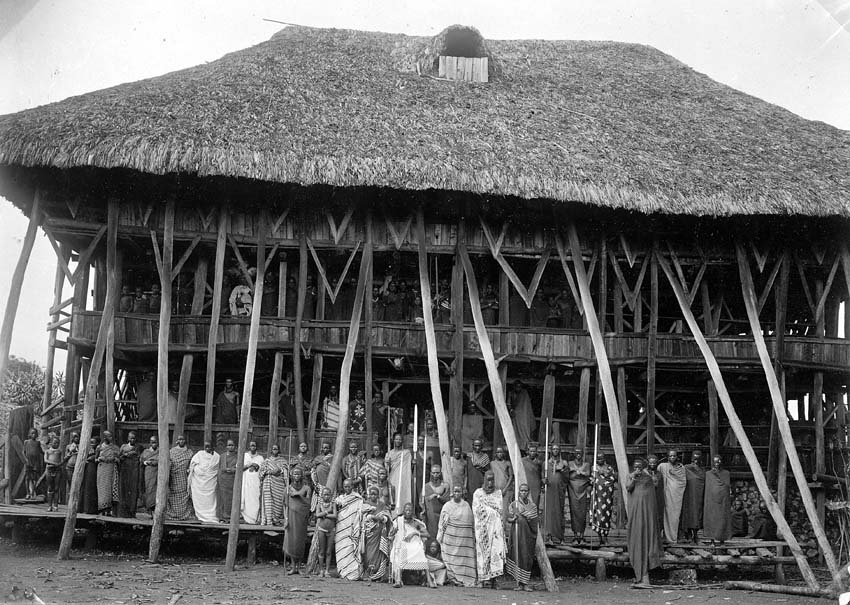
death of Mangi Sina, allegedly poisoned by Marealle, successor is his son Molelia.
first baptism in Machame.
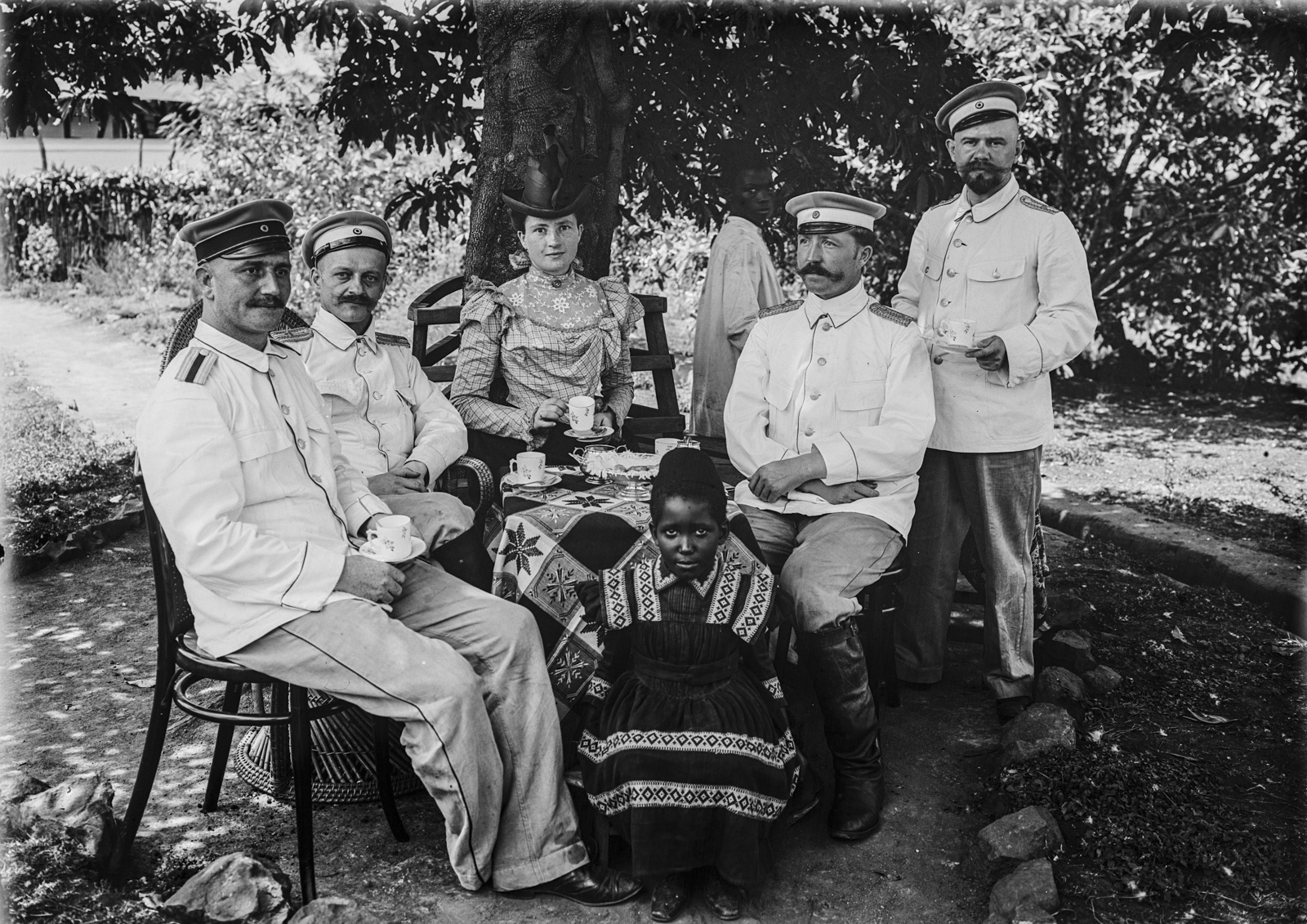
the fourth Lutheran mission station is founded in Kibognoto/Shira (Mangi Ngalami), the missionary is Johannes Raum.
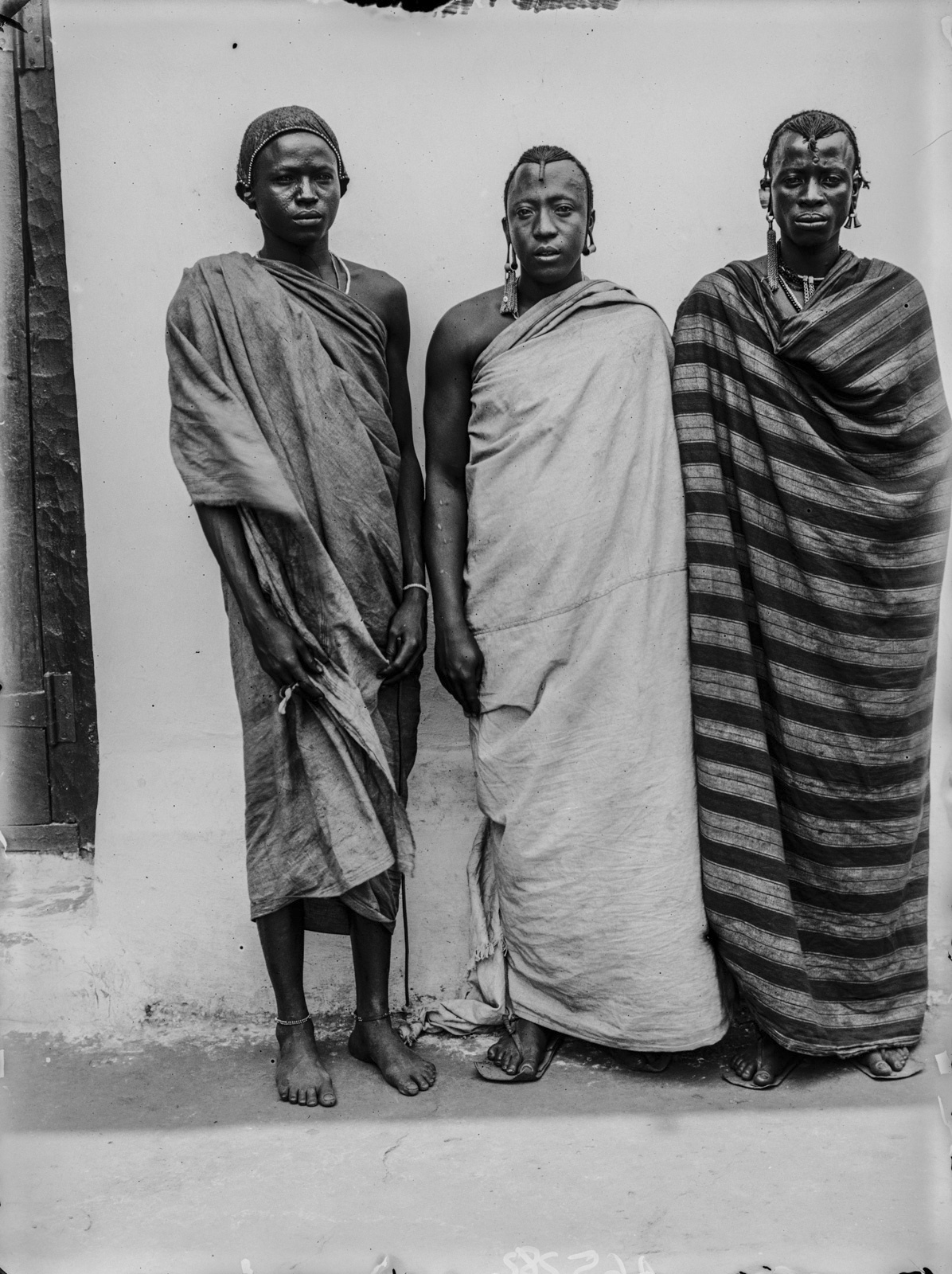
attempted surprise attack by warriors from Arusha together with Wachagga warriors on Moshi military station. Captain Johannes suspects, allegedly under the influence of Marealle, Moshi (Meli) and Kibosho (Molelia) of being in collusion with Arusha and Meru.
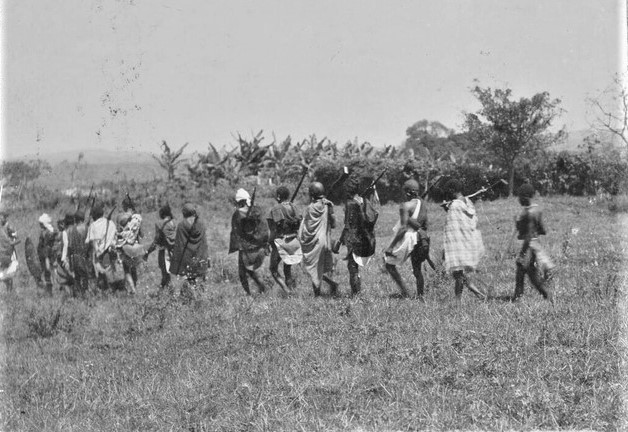
military campaign against Arusha under the command of Johannes with the participation of almost the entire Chagga principalities, then:
Captain Johannes has Mangi Meli (Moshi), Mangi Molelia (Kibosho), Mangi Ngalami (Kibognoto/Shira), and other leaders from Meru and Arusha arrested.
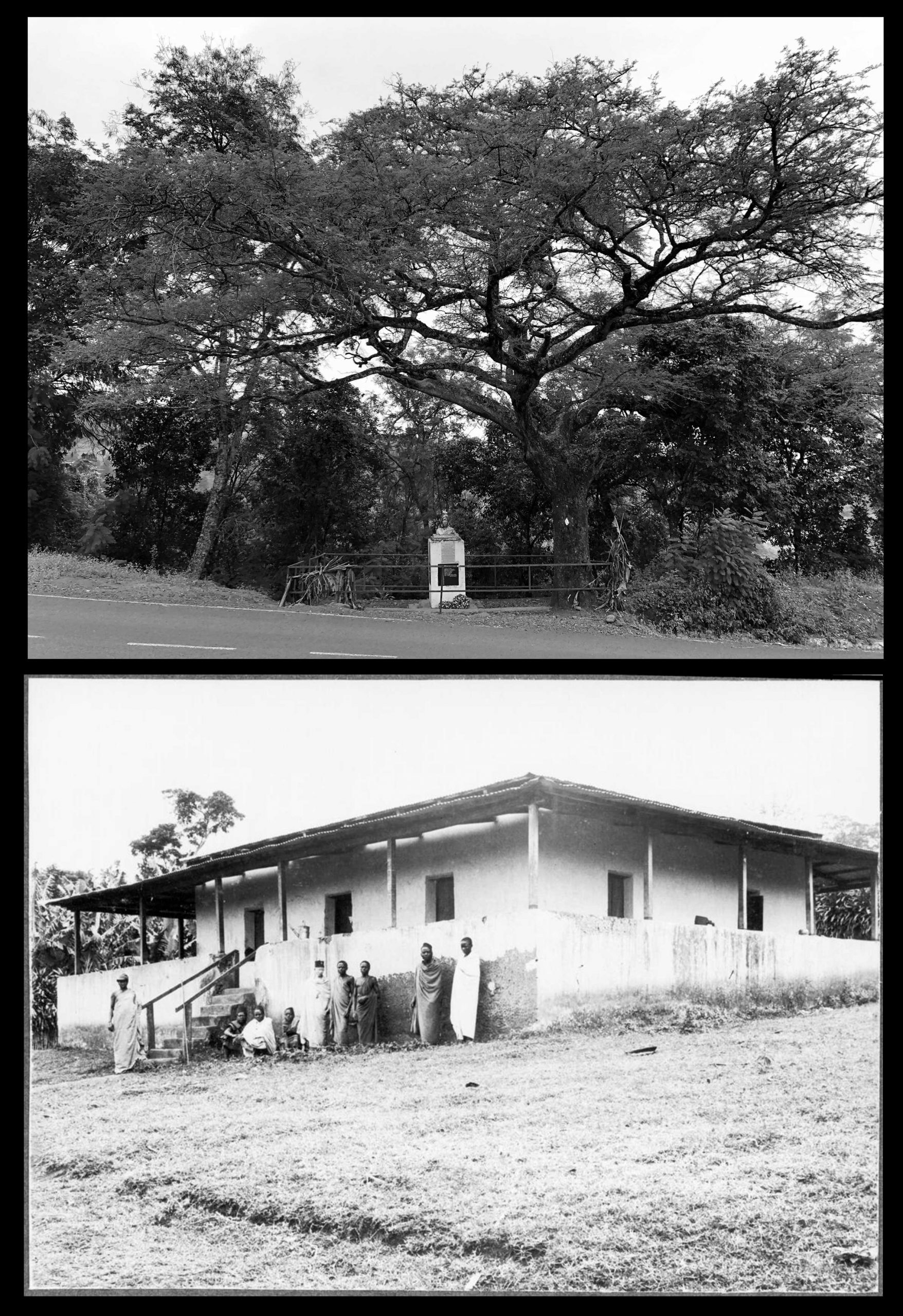
Mangi Meli, Mangi Molelia, Mangi Ngalami, princes from Arushu and Meru and other Mangi and leaders are publicly hanged in Moshi.
the Arusha military station is founded.
Captain Kurt Johannes is replaced by Captain Moritz Merker.
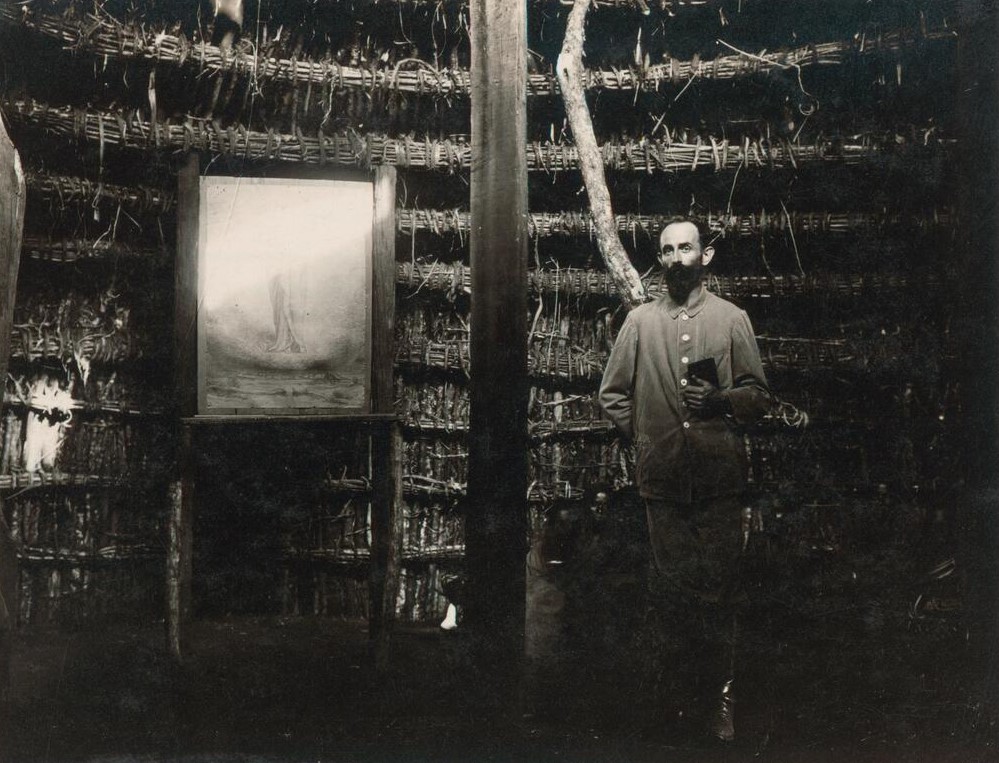
Bruno Gutmann's first mission in Mamba (missionary Althaus) then in Machame, from there to Masame (until 1908)
Moritz Merker ends Marealle's dominance in east Kilimanjaro: escape from Marealle to Taweta and Nairobi.
Captain Moritz Merker is replaced by Lieutenant Abel.
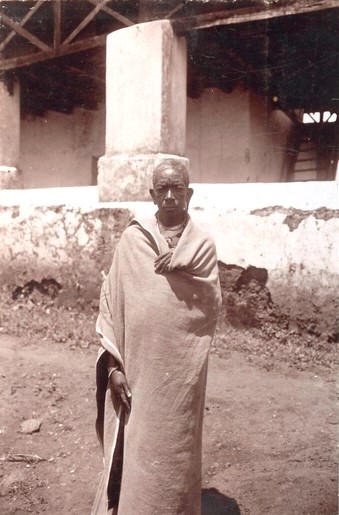
Marealle is again Mangi in Marangu (until 1912, then he abdicates in favour of his son Mlanga).
Majimaji war in southern and eastern Tanzania, without the participation of the Wachagga. Kurt Johannes and Moritz Merker are actively involved as company commanders. The main tactic used was "scorched earth" against the civil poulation.
Captain Moritz Merker dies in Muanza.
Bruno Gutmann publishes his first book on Wachagga culture in Germany: "Dichten und Denken der Dschagga-Neger".
Gertrude Emily Benham is the first woman to climb Mount Kilimanjaro.
Bruno Gutmann becomes a missionary in Kidia (Moshi) until 1920, then expulsion and internment.
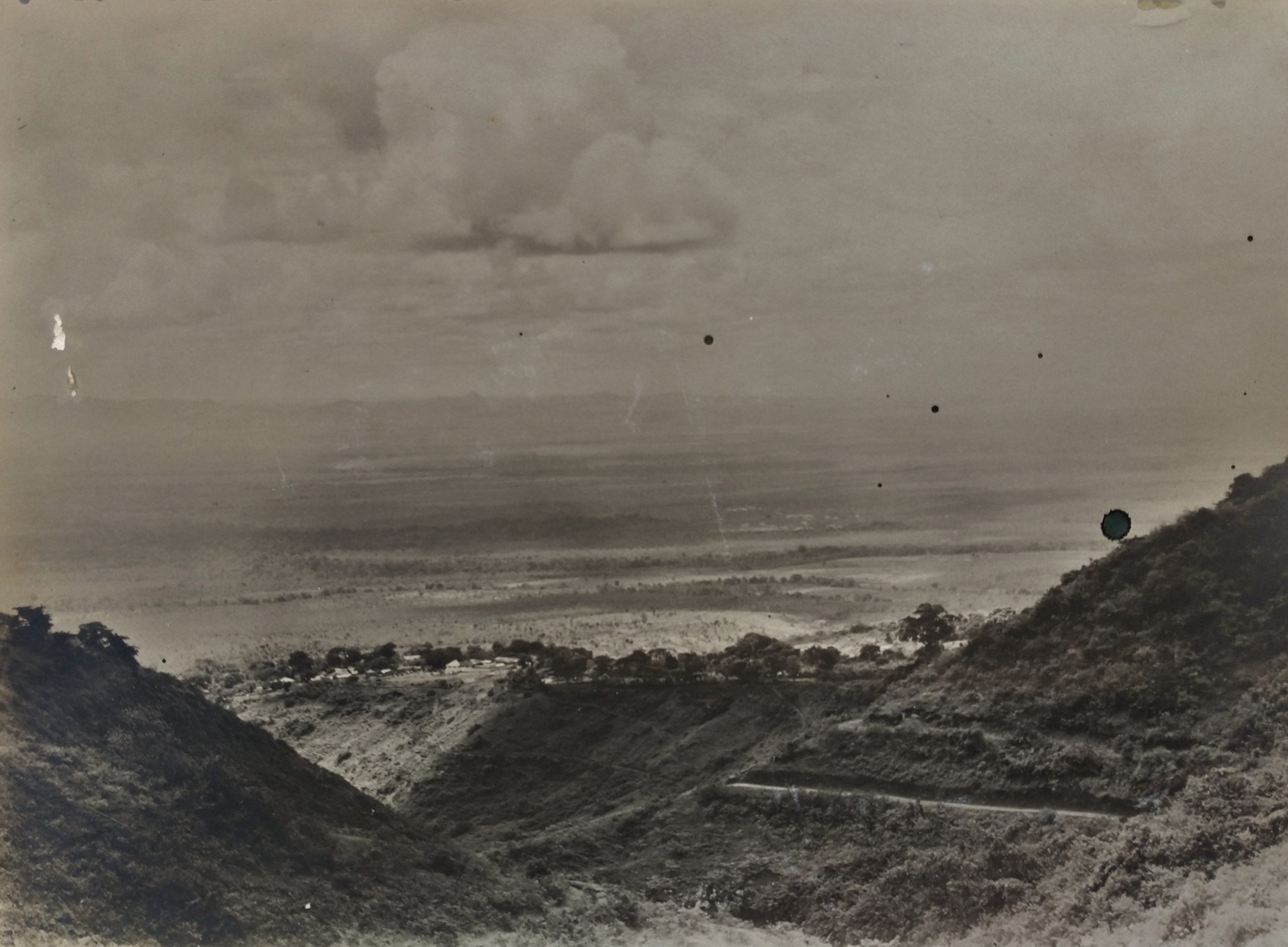
the Usambara railway is completed as far as Moshi, New Moshi is built around the station.
Dr Förster builds a hotel in Moshi and two mountain huts on the Marangu route: the beginning of Kilimanjaro tourism.
death of Kurt Johannes in Charlottenburg.
beginning of the First World War.
death of Mangi Marealle in Marangu.
death of Carl Peters in Peine.
End of the First World war. Germany loses all its colonies. - The Kilimanjaro region becomes British.
picture credits
Sammlung Hans Meyer:
Europeana (https://www.europeana.eu/de)
Archive of the Leipzig Mission:
University of Southern California


